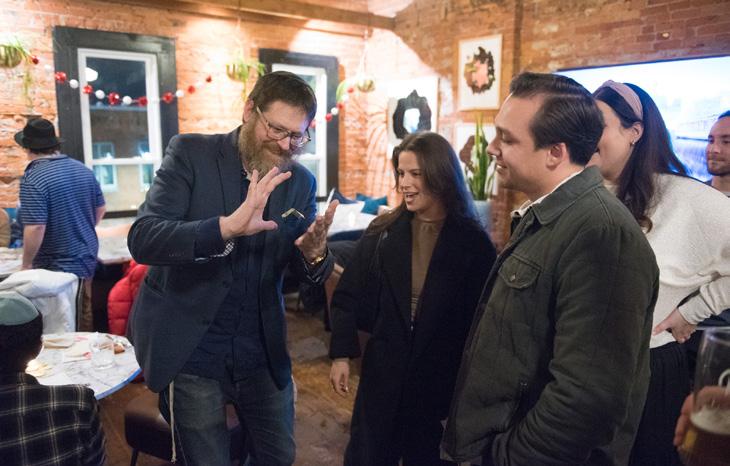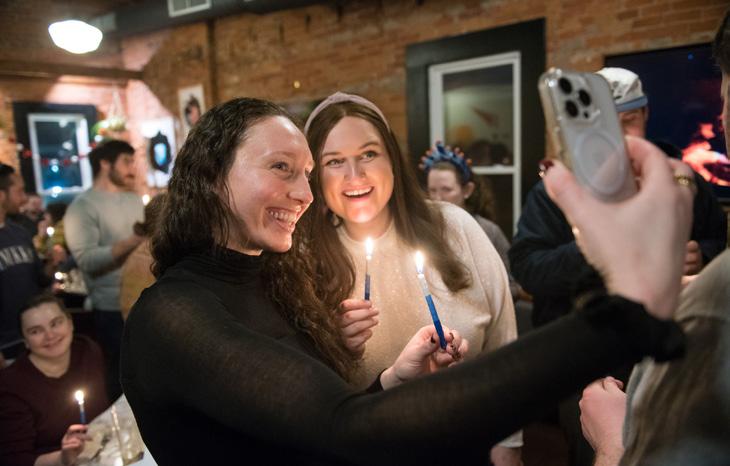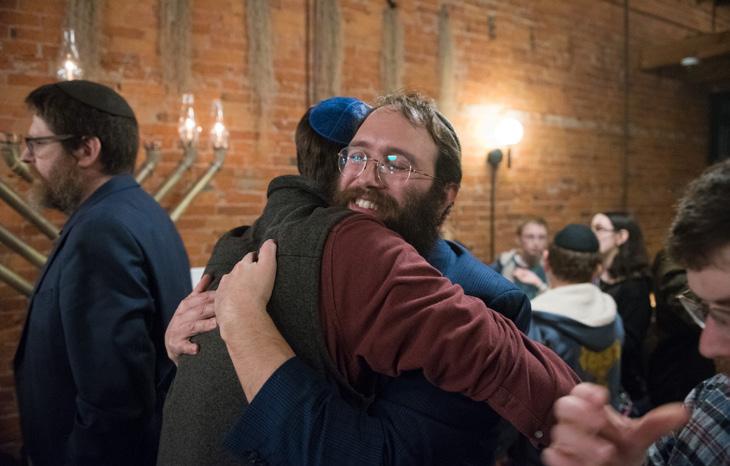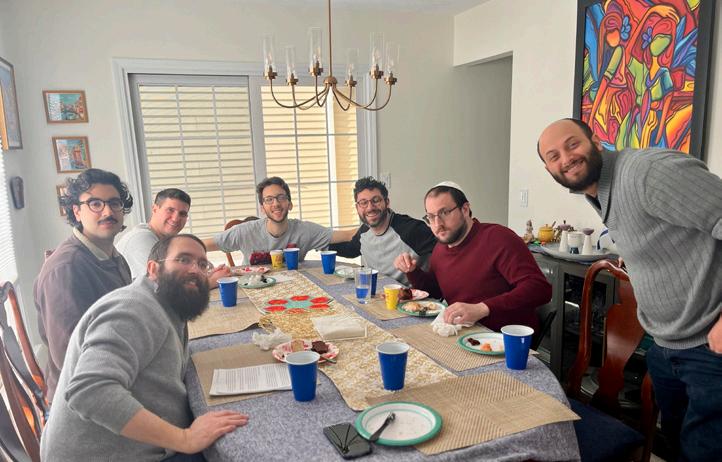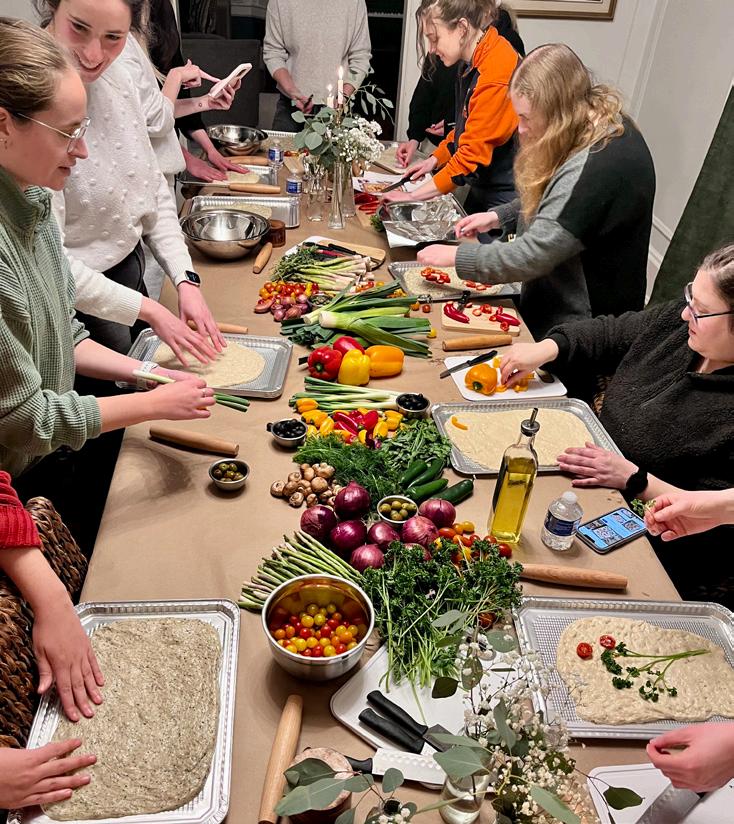

THE CHABAD TIMES
A Publication of Chabad Lubavitch of Rochester

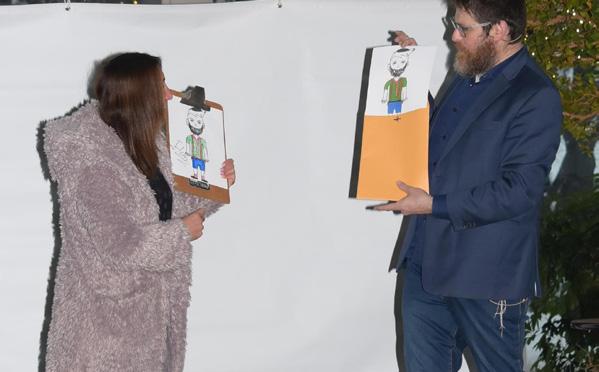
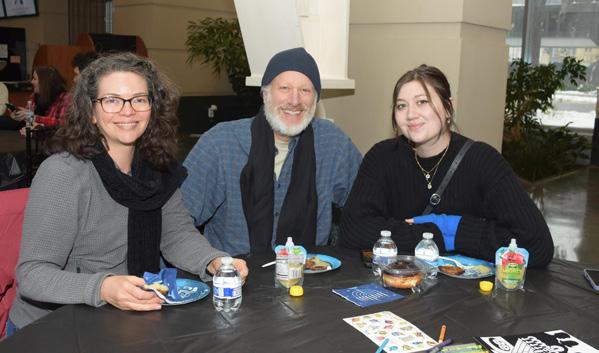


Spreading Light: Downtown, 12 Corners, Geneseo & Sunshine Circle



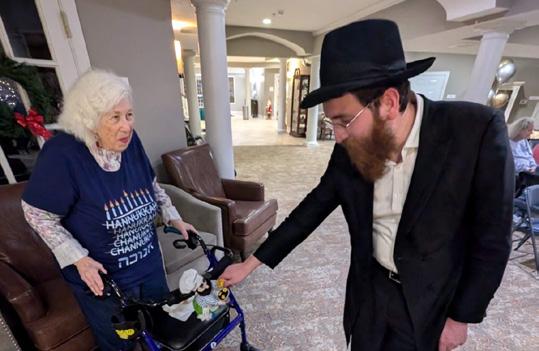




12 Corners Photos by Michael E. Pollock
Divine Chess Moves
Shalom Uverachah! Here’s a thought which, “without going into the whole Megillah”, succinctly expresses the underlying theme of the Purim story:
Imagine a chess game where the pieces on the board seem to move of their own accord. Pawns, rooks, queens and kings all move in the correctly prescribed manner, yet of their own volition. The chess pieces, we decide, must be puppets with invisible strings or they’re magnetized or computerized. Somewhere, somehow, there is a hidden hand pushing the pieces around.
The events which we commemorate on Purim are their own kind of chess game. In the Megillah, the record of the story of Purim, one does not see, nor hear any mention of G-d. In fact, G-d’s name is not mentioned in the entire Megillah; the Book of Esther is the only book in the entire Bible in which G-d’s name never appears. And yet, somehow, someway, after learning about the “chess game” which took place in those days, one must conclude that G-d’s Hand was controlling all the moves.
Enter Esther, a woman who had no interest in becoming the new Queen, who in fact hid herself from the royal messengers to avoid participating in the “beauty contest”. In addition, Esther did nothing whatsoever to beautify herself once she was among the “contestants” in the palace.
Add to this the fact that, although Esther’s relative, Mordechai was well-known by all, no one in the palace knew or realized that Esther was Jewish, nor did this ever occur to the king until Esther told him herself.
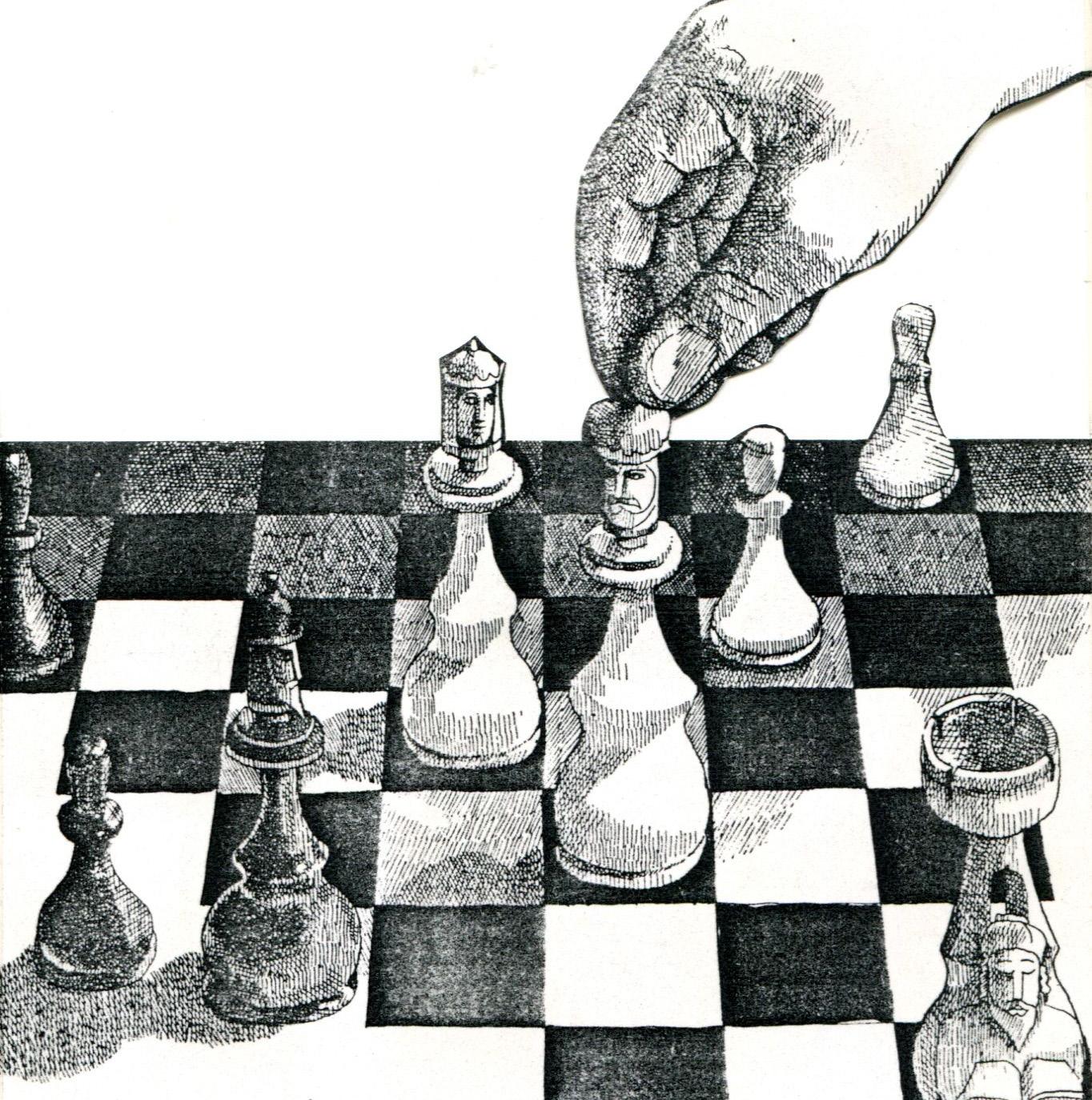
Judaism teaches that G-d supplies the “cure” before He brings the “illness.” In the story of Purim, even before Haman rose to power and convinced King Achashverosh to sign the decree to annihilate all the Jews, the King had become angry with his wife, Vashti, had gotten rid of her, and had begun a search for a new queen.
Kessler Family Chabad Center 1037 Winton Rd. S. Rochester NY 14618 585-271-0330 chabadrochester.com
Rabbi Nechemia Vogel
Rabbi Dovid & Chany Mochkin
Chabad Of Pittsford 21 Lincoln Ave. Pittsford NY 14534 585-340-7545 jewishpittsford.com
Rabbi Yitzi & Rishi Hein
Esther was already wellplaced in the palace and a favorite of the king when Haman’s evil plan was signed into action. The Divine cure could begin its work once the illness began.
Throughout the entire course of events, everyone moved as they should have; the king one square at a time, Esther, as she pleased but in accordance with Torah, Mordechai in a straight line. To the untrained eye, it looked like a regular chess game. Except that chess pieces don’t move by themselves.
The story of Purim, with its overt lack of G-d’s name even once in the entire Megillah, was a Divine chess game, par excellence. And the best thing about it was that our side won.
Wishing you a Freiliche Joyous Purim, Lechaim!
Chabad Lubavitch of Rochester
Chabad Lubavitch of Rochester NY
Chabad Young Professionals 18 Buckingham St. Rochester NY 14607 585-350-6634 yjprochester.com
Rabbi Moshe & Chayi Vogel
Rohr Chabad
House @ U of R 955 Genesee St. Rochester NY 14611 585-503-9224 urchabad.org
Rabbi Asher & Devorah Leah Yaras
Chabad House @ R.I.T. 3018 East River Rd. Rochester NY 14623 347-546-3860 chabadrit.com
Rabbi Yossi & Leah Cohen
Chabad House @ SUNY Geneseo 650-675-8282 chabadgeneseo.com
Rabbi Laivy & Goldy Mochkin
Chabad Sunshine Circle 585-200-9709 chabadrochester.com
Rabbi Mendel & Mussi Vogel
“Lots of Luck!”
Adapted
from the works of
the
Rebbe by Yossy Goldman
The word Purim means “lots.” Haman put 12 slips of paper into his hat (which, for the record, did not have three corners) and drew lots to determine in which Hebrew month to kill the Jews. The lot fell on the month of Adar.
Now, a little knowledge is dangerous, and Haman knew that Moses had died in Adar and saw that as a good omen for his plot’s success. What he did not realize, however, was that Moses was also born in Adar, and it was, in fact, not a good omen for Haman.
In looking to name this holiday, why choose the name Purim - Lots? It seems rather dull and unimaginative. The Purim story is indeed an exciting plot full of twists and turns. How would one have titled such a story? Definitely not “Lots.”
There is, however, a deep meaning behind the Sages’ choice of this name.
Haman viewed life as one big lottery. It’s all the luck of the draw, the roll of the dice, a spin of the wheel, or a flip of the coin. Heads one wins, tails one loses. Heads one lives, tails one dies. Haman believed that everything is random. He denied the concept of Divine Providence, that G-d is the Master of the Universe and runs the world.
And to that, we, the Jewish people, say a defiant “No!” Life is not random! Life is meaningful and purposeful and how we live our lives is reflected by how G-d deals with us. We are not dependent on nature or logic; we live by the miraculous.
Logically, we shouldn’t even exist.
For us Jews, miracles are the norm. That’s how we survived until now and that’s how we continue to survive today. Jewish survival and Jewish life defy the very laws of nature.
And that brings us back to the story of Purim.
Logically, it made no sense whatsoever for the Jews of Persia to be threatened with genocide. In Persia, a relatively enlightened society, the Jews were granted freedom and civil rights They were even invited to the king’s party. And suddenly, they were facing the threat of total annihilation? It made no sense at all. It came out of the blue.
In
looking to name this holiday, why choose the name Purim - Lots?
It seems rather dull and
unimaginative.
But while it was not logical, it was not random either. You see, the Jews of Shushan went to the king’s party, the mother of all parties that lasted not a day, not a week, not a month, but 6 months! “180 days,” says the Megillah. And while there are different opinions as to whether they ate non-kosher food or not, it was still an act of Jewish shame, debasement, and humiliation. At that party, King Achashverosh displayed the sacred vessels of our Holy Temple that Queen
On The Lighter Side
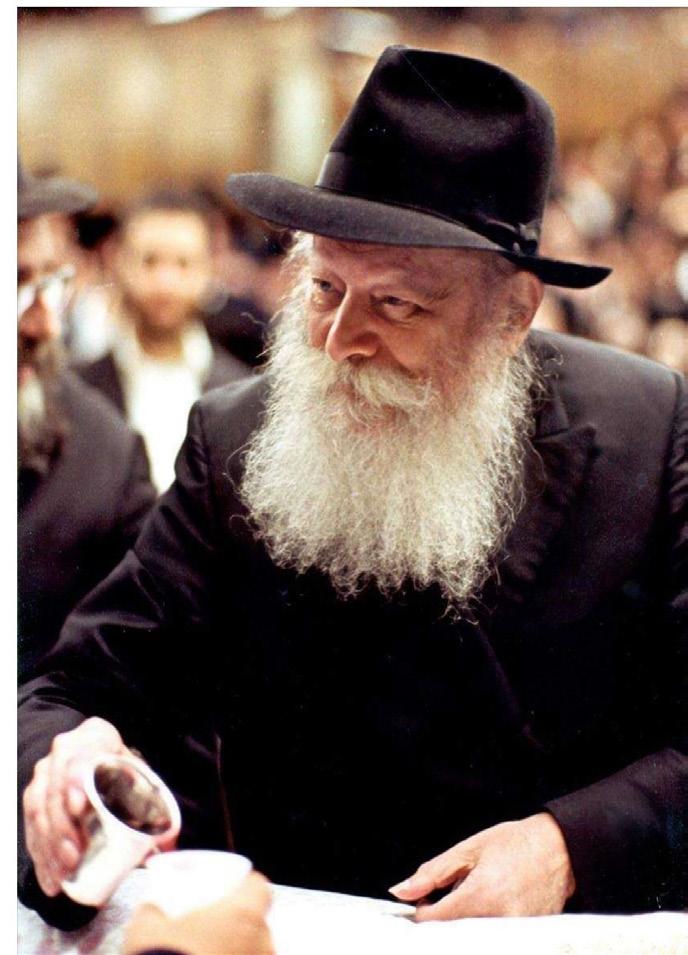
Vashti’s grandfather, Nebuchadnezzar of Babylon, had looted when he destroyed the Temple and Jerusalem.
Can you just imagine… our holy golden Menorah being used as a prop? As décor for this wild, drunken party? What a disgrace to Jewish self-respect, to Jewish pride and principle. And that tragic loss of our own priorities led to Haman’s terrible decree. It wasn’t until we repented and changed our ways that we were saved by a miracle through the brave efforts of Queen Esther and her cousin Mordechai.
Now let’s have a look at the solution. It came through the intervention of the courageous Queen Esther, arguably the greatest Jewish heroine in all of history.
...And then there’s the lottery story about the family who discovered that their elderly father had picked the winning number and won multi-millions! But the old man had a weak heart, and his kids were worried that with his condition, the news may give him a heart attack. So they asked his cardiologist to break the news gently and be on hand in case the excitement affected his heart.
The doctor agreed and went to see his patient. He started the conversation rather harmlessly: “Hey Sam, what would you say if I told you that you had won the lottery?
Sam answered, “Hey doc, if I won the lottery, I’d give you half! On the spot the doctor had a heart attack.
What did Esther do? She went to see the king. Uninvited. Unannounced. She took her life in her hands, because if the king wasn’t happy to see her, it could have easily been off with her head, just like Vashti. Indeed, Esther was afraid; she hadn’t been summoned to see him for a whole month.
So before she went, she asked Mordechai to have all the Jews fast and pray for her success. She, too, fasted for three days before approaching King Achashverosh.
Logically, fasting was the very last thing Esther should have done! Surely, she should’ve tried to look her very best and make a favorable impression with the drunken, degenerate king.
But no. What does Esther do? She fasts and prays to G-d. She fasts for three days! You know what you look like after one Yom Kippur? Can you imagine what you look like after three Yom Kippurs?!
The Jewish people, too, took the least logical path. Did you know that according to commentary they could have saved their lives by giving up their faith? But no. For the entire year that Haman’s decree was in place, not one Jew gave up his or her faith. Not one!
The bottom line? Jews are not normal. No, we’re not meshuga. But we operate by different rules. We are not a nation like other nations. Our existence and survival are determined not by the lottery, political science, diplomatic initiatives, or the normal laws of nature, but by G-d Almighty and His infinite Divine Providence. When we daven, when Esther fasts, when we return to G-d with all our hearts, then miracles happen.
And Esther understood this. That’s why she didn’t do all the things a normal woman would have done to make an impression on the King. She knew she had to make an impression not on
King Achashverosh, but on the King of Kings, G-d Almighty.
So, no, life is not the luck of the draw, or the roll of the dice. Life is not random. We didn’t survive millennia of adversities by good fortune or coincidence, nor by being clever and resourceful. Life is meaningful and purposeful and Jewish life must be authentically Jewish. Only then, do we merit the Divine Providence and heavenly protection that despite all odds, no matter the circumstances, we will prevail and still be here to tell the tale. May we continue to experience the miracle of Jewish survival until the ultimate and imminent miracle of Moshiach.



The Happiness Dilemma
by Mendy Herson
Don’t worry. Be happy.
A beautiful philosophy in charmingly simple words.
But is it realistic? What if I have stresses that I can’t ignore? Should I stick my head in the sand and just smile?
Happiness isn’t that simple. Happiness is a frame of mind, and it’s deceptively difficult to achieve - and maintain - that mindset.
Happiness doesn’t mean buoyant frivolity. That’s temporary and it isn’t deep. To me, happiness means a genuine inner peace and balance; it means that my world makes sense.
So I’m not talking about artificially-inspired joy (alcohol, etc.), nor externally-stimulated joy (a great party). Those might make me feel good, but I’m not experiencing a genuine, internal happiness; I may simply be numbing my unhappy self with external forces.
So how do I achieve a happy frame of mind?
When I feel that my life has purpose, and that the things I do are genuinely in the service of that purpose, I’m on the road to happiness.
I may still be working hard, and dealing with difficult situations. But if I’m living for a worthy goal, I feel internally balanced and happy.
But this purpose needs to be:
From Moscow to the Gulags
by Baruch Epstein
One of the great chassidim of the past generation was Reb Mendel Futerfas. Reb Mendel endured 20 years of torturous labor in a Soviet prison camp for the crime of teaching Judaism. Reb Mendel’s heroic defiance extended beyond his life-risking efforts to observe Jewish law, to his far more bizarre persistence at always being cheerful, regardless of his desperate circumstances.
1. Something I truly value.
2. Something which is genuinely a deep-seated purpose of mine (not just a side beneficiary of my life efforts).
3. Something substantial and enduring.

For all the above reasons, I can’t be truly happy building sand castles. I need a more genuine anchor.
Raising a psychologically and spiritually healthy family is one good example. If I set my family as my goal, and build my world around their healthy growth, that can bring me inner peace. If my purpose in going to work is to provide for them, I can maintain inner peace in the face of work challenges. I can endure significant stress because I’m doing it for a higher purpose. For them.
In Judaism, holiness is the purpose which can bring balance to all of life. So if I believe that I and my actions truly matter to G-d, if I believe that my every action can change me or my world for good, that every action is cosmic and enduring in a true sense - then I can have a genuine inner peace.
The stresses are there. But I believe that embracing these stresses and accepting them wholeheartedly is itself a part of my soul’s growth and maturation. Each moment can become an eternally shining nugget of meaning.
How can we not be happy?

Reb Mendel’s virtue and piety earned him an unpar-
alleled degree of respect from his fellow inmates. Once, as they sat together, they asked him out of incredulous curiosity why he was always happy. In classic Talmudic style he turned the question back to them, asking why they were so depressed. Stunned, they responded with the seemingly obvious - each told his tale, how they had once been prominent lawyers, journalists or politicians back in Moscow, and how they had run afoul of the government and now they were banished to the wasteland of Siberia. Everything they had was taken away. Convinced that they had made an irrefutable case for their misery, they returned to their original question: “Mendel, why are you so happy? Haven’t you lost everything?”
To which he replied, “In Moscow I was a Jew and here I am a Jew.”

Some
GLASSES GLASSES PURIMGLASSES PURIM PURIM
HERE’S THE STORY
It all started almost 2400 years ago in the ancient Persian empire when the king’s advisor Haman plotted “to destroy, kill and annihilate all the Jews, young and old, infants, and women, in a single day.”
Haman had meticulously devised how he would execute his scheme and even drew “lots,” or “Pur,” in ancient Persian, to choose a date for the end of the Jews. The chosen date was Adar 13.
However, in a last-minute plot twist, a string of divinely orchestrated events foiled Haman’s diabolical scheme, and the Jews were saved.
The following year the Jews established Adar 14 as a day of celebration for all generations.
The holiday was named “Purim” since Haman had thrown lots, or “purim.” This story is documented in the Scroll of Esther.
You won’t find G-d’s name in the Scroll of Esther unless you get a pair of Purim glasses. Then, you’ll see G-d’s name hidden on every page. Sure, you won’t read about any blatant miracles, but with some Purim glasses, you’ll start seeing the hand of G-d behind everything that happens.
So, here’s a guide to seeing the world through these lenses. Now, you’ll appreciate how Purim celebrates the past and, most importantly, the present.
SHABBAT, MARCH 8 | 8 ADAR
REMINDER TO FORGET!
Do Not Forget: The Shabbat before Purim is called Zachor, because Zachor means to remember, and the Torah commands us to “Remember to blot out the name of Amalek.” Haman (a great grandson of Amalek) is blotted out with graggers while reading the Megilah on Purim.
THURSDAY, MARCH 13 | 13 ADAR
PERFECT PURIM PREP
Ta’anit Esther is a fast day that commemorates the fast observed by Esther. Unlike Yom Kippur, this fast is a custom, therefore, if you have any health issues, contact your Rabbi for guidance.
HALF SHEKEL ANYONE?
It is customary to give three half dollars to charity. This custom is in memory of the half shekel given by Jews in Temple times. This biblical tax supported the supply of Divine offerings used in the Temple service. Spiritually, the half shekel reminds us that G-d Himself is our other “half,” and He completes us by making us His partners in perfecting creation. The sages advise us to give three half shekels since the Hebrew word terumah donation, and the words “half a shekel,” are mentioned three times in the Torah.
PURIM NIGHT
THURSDAY, MARCH 13 14 ADAR
THE MEGILAH SHE WROTE
Head to your local Chabad for a reading of the whole Megilah. The Megilah, a.k.a. “The Book of Esther,” is the scroll that tells the Purim story. We listen to the reading of the Megilah twice: once on Purim night, and again on Purim day.
BOOOOO!
Custom: When Haman’s name is mentioned (Chabad custom is that this is only when it is accompanied by a title), you can twirl graggers (noisemakers) or stamp your feet to eradicate his evil name.
SPECIAL PRAYERS
On Purim, we include the brief V’al Hanissim section in all the day’s prayers, as well as in the day’s Grace after Meals. This prayer describes the Purim story and thanks G-d for the “miracles, redemptions, mighty deeds, saving acts and wonders” that He wrought for our ancestors on this day many years ago.
DRESS UP!
On Purim, children—and some adventurous adults—traditionally dress in costumes, an allusion to G-d’s vailed hand in the Purim miracle, which was hidden behind natural events.
SHUSHAN
PURIM DAY, FRIDAY, MARCH 14 | 14 ADAR
YOUR PERSONAL PURIM CHECKLIST
MEGILAH
The Megilah, a.k.a. “The Book of Esther,” is the scroll that tells the Purim story. We listen to the reading of the Megilah twice: once on Purim night, and again on Purim day.
CHARITY
Give money (or food) to at least two needy people during the daylight hours of Purim. This mitzvah obviously brings joy to the poor and, surprisingly, you will notice that the giver also experiences intense joy by giving. So, give joy to get joy.
GIFTS OF FOOD
Send a package containing at least two different ready-to-eat food items and/or beverages (e.g., pastry, fruit, beverage) to at least one Jewish acquaintance during the daylight hours of Purim. Men send to men, and women to women.
FESTIVE MEAL
Enjoy a festive Purim meal with challah or bread, celebrate with good food and fine wine. On a year when Purim falls on Friday, we start the meal before midday in deference to Shabbat.
PURIM, SHABBAT, MARCH 15 | 15 ADAR
In ancient walled cities—Jerusalem is the primary example—Purim is again observed on the 15th of Adar. This is to commemorate the fact that in the ancient walled city of Shushan, the battles between the Jews and their enemies extended for an additional day. This year, since Shushan Purim falls on Shabbat, there are special observances. If you live in an ancient walled city, contact your Rabbi for guidance. •

Purim 5785 / 2025
The Story of Purim
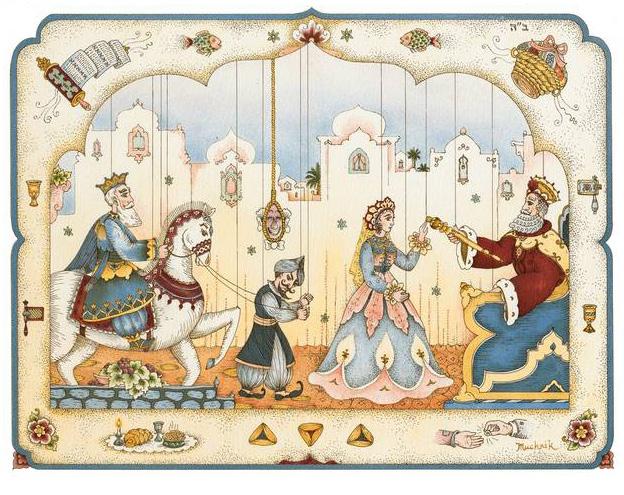
Once Upon A Time…
It all began in the city of Shushan of Ancient Persia in the 4th century BCE. The reigning King Achashverosh hosted a series of lavish royal feasts in his palace that went on for 180 days - six months! Every citizen living in Shushan was invited. The Jews, too, participated in the great party.
Intoxicated with the excitement of the festivities and days of endless drinking, King Achashverosh commanded his queen, Vashti, to appear before his guests wearing only her crown. Vashti refused. Enraged, the king consulted with his ministers and had Vashti executed.
The Beauty Contest
The king now needed a new queen. Achashverosh had all the beautiful women of the country brought to the palace so that he might choose a wife. The king chose Esther (Hadassah), the cousin of Mordechai, who was one of the leaders of the Jewish people. Heeding Mordechai’s advice, Esther did not reveal her identity as a Jewess, and observed Jewish law secretly in the palace.
Mordechai To The Rescue
Mordechai would spend time at the palace gates every day, waiting for word from Esther. One day Mordechai overheard two of the king’s chamberlains discussing a plot to assassinate the king. He told Esther of the plot and she informed the king. The plot was foiled, and Mordechai was credited with saving the king’s life.
The Anti-Semite
Meanwhile, Haman, a descendant of Amalek - the implacable enemy of the Jewish people - became Prime Minister of the king’s court. The king had issued an order commanding everyone in the palace to bow down in def-
erence to Haman, but Mordechai refused because Haman wore an idol around his neck. This so enraged Haman that he devised a scheme to annihilate all the Jews in the kingdom on the 13th day of the Hebrew month of Adar.
Mordechai’s Request
Hearing of the evil plan, Mordechai donned sackcloth and ashes and told Esther that she must go to the king and intercede on behalf of her people. To appear before the king without being summoned meant risking her life. Esther requested that all the Jews undertake a three-day fast of prayer and repentance.
Mordechai gathered the Jews of Shushan - especially the children, 22,000 of them - and they fasted, repented and prayed to G-d.
The First Feast
At the end of the three days of prayer, Esther stood uninvited be-fore Achashverosh. Upon seeing her, the king immediately extended his scepter. “What is it?” Achashverosh asked. “What is your request?” “I would like to invite the king and Haman to a private party,” Esther responded.
During the feast, the king again asked Esther whether she had any request. “Yes,” Esther responded. “I would appreciate if tomorrow, again, the king and Haman would join me for a feast.”
Haman left the party a happy and proud man. Oh, the honor he was being accorded! But standing at the king’s gate was Mordechai - who still refused to bow to Haman - and Haman was enraged. When he arrived home, his wife and wise advisors counseled him to erect a gallows, and then to go to the king and request permission to hang Mordechai. Haman excitedly went ahead and put up the gallows.
The Beginning Of The End
Sleep eluded the king that night, so he asked his servants to read for him from the Royal Chronicles. When they reached the episode where Mordechai saved his life, he realized that Mordechai had never been rewarded. Just at that moment, Haman appeared in the courtyard, planning to suggest to the king to hang Mordechai.
When he entered Achashverosh’s chambers, the king asked Haman, “What shall be done to a person whom the king wishes to honor?” Haman, who was certain that the king wished to honor him, responded: “Bring royal garment and a royal horse. And let one of the king’s nobles dress the man and lead him on the horse through the city streets, proclaiming before him, ‘So is done for the man whom the king wishes to honor!’”
The Chabad Times - Rochester NY - Adar 5785
“Great idea,” Achashverosh responded. “Now go get the garments and the horse and do so for Mordechai the Jew!” Haman had no choice but to comply. On the next day he went and honored Mordechai as the king had ordered, and then immediately rushed to join the king and Esther for...
The
Second Feast
“What is your request?” a curious King Achashverosh asked Esther at the feast. “If I have found favor in your eyes, O’ King,” Esther replied. “Spare my life and the lives of my people.” Surprised, Achashverosh asked Esther who had threatened her. She replied that it was none other than the wicked Haman. Haman was immediately hanged on the gallows he had intended for Mordechai.
The Tables Are Turned
Although Haman was dead, his cruel decree remained unchanged. According to Persian law, once a king had issued a decree it could not be rescinded. A new decree was issued, granting the Jews permission and the means to defend themselves against their enemies. The Jews experienced a stunning victory.
In Commemoration
At that time, the 14th day of Adar was consecrated as the festival of Purim, to celebrate and commemorate the great miracle of our people’s salvation and the downfall
of the wicked Haman. This holiday, called “Purim”, is the most joyous holiday on the Jewish calendar.
Then & Now
The Talmud tells us that “whoever reads the Megillah backwards does not fulfill his obligation.” Our Sages explain that “backwards” does not only mean in reverse order; it also means that whoever reads the Megillah merely as ancient history has missed the point. The Purim story is directly relevant to our contemporary world. As the Megillah itself tells us, when we celebrate Purim each year, the miraculous events of Purim - G-d’s protection and the victory over our enemies - are “remembered and reenacted” in our lives.

abcdefghi
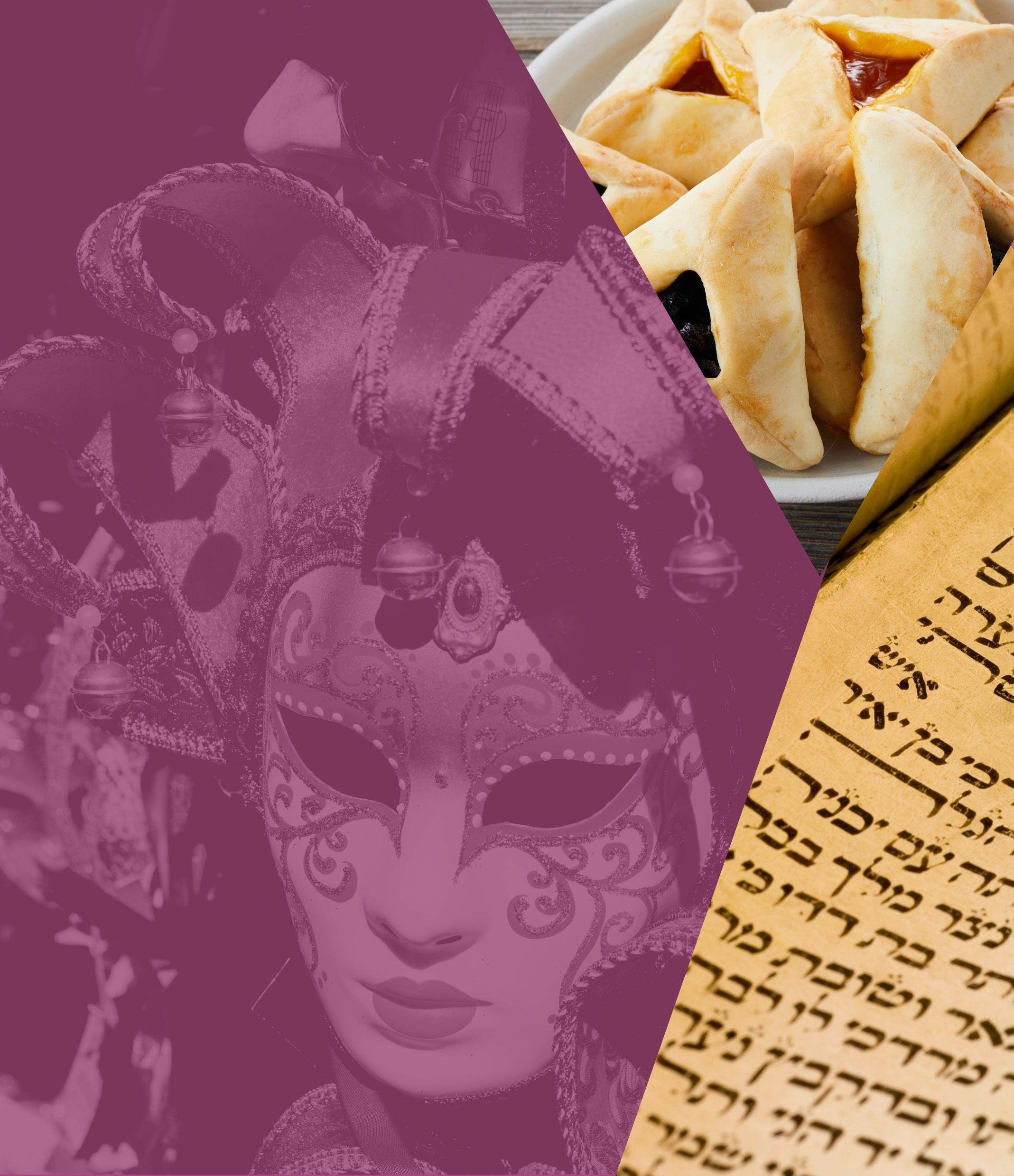
Megillah Readings: Purim Eve. Thursday, March 13 7:30 PM
Kessler Family Chabad Ctr.
Purim Day Friday, March 14
8:30 AM & 1:00 PM (Services start at 8:00 AM)
Kessler Family Chabad Ctr.
10:00 AM Wolk Manor 5:30 PM @ JCC
ONE NATION UNDEFEATABLE
By Rabbi Shmuel Marcus
The story of Purim tells us how, although we were dispersed across various lands with diverse customs and languages, the evil Haman called us the “one people” he sought to destroy.
Haman’s lobbying the king for his evil attack displayed his intent, but he also unwittingly highlighted the unifying factor and oneness of all Jews. Haman didn’t know that this Jewish unity makes the Jews undefeatable against their enemies.
Haman used the phrase to tell the king about his plans: “There’s one nation scattered throughout your kingdom.” Haman emphasized the “scattered,” but it was too late. The power of our “one nation” had already been activated. It’s true that even when geographically “scattered” and immersed in diverse cultures, Jews maintain a collective identity as “one nation.”
Historically, the Torah has been our unifying force, fostering an internal cohesion that transcends external differences.
We’ve faced adversaries like Haman throughout history, but we’ve endured thanks to our “Oneness.” Situations change, but one thing stays the same with every victory: our unity.

Today, the Purim observances of sending food gifts to friends and giving gifts to the poor turn this “oneness” and love into action. Although we are always commanded to love our neighbor and feed the hungry, Purim requires us to seek out others and those in need actively. Purim is the only holiday that cannot be
WE’VE FACED ADVERSARIES LIKE HAMAN THROUGHOUT HISTORY, BUT WE’VE ENDURED THANKS TO OUR “ONENESS.”
celebrated alone because we need each other to destroy Haman.
Generally, we give gifts of food to our friends and close associates. In contrast, by reaching out and helping a poor person we may never have seen before, we show that our personal feelings do not limit our
relationships with others. A true sense of Jewish unity implies a love for every Jew, even those we do not know personally.
The Rebbe would often remark that Jewish unity is the powerful antidote to modern day Hamans. Because when we create an atmosphere of love and peace within our home and community, that harmony impacts the world around us.
In other words, we can each shine a light, but our superpower is a collective light that amplifies and blazes through the toughest darkness.
In a way, Haman was responsible for his downfall. His evil schemes backfired, and instead of inflicting destruction, he activated Jewish unity, mitzvah observance, and ultimately our Divine protection.
This year, let’s take a page from the Purim playbook and seek out and connect with others, because together, we defeat Haman.. •
(Based on the teachings of the Rebbe)
>> Rabbi Shmuel Marcus is the editor at Chabad Magazine.
Photo by The Smiling Soldiers Project
THE KIDSPLAINING WHY YOU SHOULD LISTEN TO YOUR KIDS
By Shira Gold

They say to ask a child if you want to know the truth about your appearance. But the holy man in torn clothing wasn’t looking for reassurance about his style. Instead, he was a leader in distress looking for a Divine sign that everything would be okay. So he asked the kids.
Earlier, an evil anti-semite had convinced the King to send an open letter to arm the population for the thirteenth of Adar when they should rise to massacre “a certain group of people.”
That anti-Semite was named Haman (booo). He determined the date by casting lots and withheld the identity of this group until the second decree, which was a sealed order not to be opened before the thirteenth day of Adar.
In this sealed order, the decree spelled it out: The people of Persia should attack and kill all the Jews, young and old, women, and children, wherever they might be in the vast Persian Empire.
The sly Haman had taken every precaution to keep his plan
secret so that the Jews would be taken entirely by surprise and would not be unable to avert their doom. Haman probably rubbed his hands with evil satisfaction, giggling his evil laugh.
Haman had already witnessed the royal party, Queen Vashti’s death, and the crowing of a new queen named Esther, but Haman was still clueless about Esther’s Jewish nationality.
Sadly, both decrees were duly signed, sealed, and delivered to the various governors of the provinces. They bore the impression of the King’s royal signet and could not be revoked. The danger was real.
For the first time in history, the entire Jewish population found themselves stripped of governmental protection and were looking at an upcoming calendar date of total extinction.
Mordechai, the Jewish leader at the time, had torn his clothes and donned sackcloth and ashes. Holy men like Mordechai have their ways of getting Divine messages by asking random children to quote a verse from the Torah. So, he stopped three Jewish schoolchildren and asked them to quote him what they had learned that day.
Incredibly, the three verses were the exact truth Mordechai was looking for.
Said one: “Do not fear sudden terror, nor of the destruction of the wicked when it comes.” (Proverbs 3:25)

MORDECHAI, A LEADER IN DISTRESS, GOT THE INSPIRATION HE DESPERATELY NEEDED FROM THREE SCHOOLCHILDREN WHO TOLD THE TRUTH.

YOU’RE

THE CENTER OF THE UNIVERSE
Imagine a world where every single moment of your life feels like it holds the weight of the universe. “The entire world was created for my sake,” as the Talmud states (Sanhedrin 37a). To a child, this sentiment isn’t just a notion; it’s an undeniable truth. In their eyes, they are the center of existence, with parents and the entire cosmos revolving around their needs and desires.
Terror had come, and the message from Proverbs was clear: Do not fear.
Said the second: “Contrive a scheme, but it will be foiled; conspire a plot but it will not materialize; for G-d is with us.” (Isaiah 8: 10)
According to this verse in Isaiah, the news was getting better for the Jews, as G-d would foil the evil plans before any terror would come.
Said the third: “Even to your old age I am with you; even to your hoary years will I sustain you; I have made you, and I will bear you; I will sustain and deliver you.” (Isaiah 46:4)
The third verse said it best: G-d constantly protects the Jewish people from infancy to adulthood to old age.
Mordechai, a leader in distress, got the inspiration he desperately needed from three schoolchildren who told the truth. Soon, Haman would fall, and instead of the Jews going extinct, Haman and his family would disappear, and Jews would be around forever to celebrate the story of Purim. •
>> Shira Gold is a staff writer at Chabad Magazine.
While this perspective can lead to challenging behaviors, it also highlights a vital aspect of human nature. Children possess an innate belief that their lives matter, that their actions carry weight in a universe filled with billions. They embrace their significance without the burden of doubt that often clouds adulthood.
This childlike spirit within us is essential to nurture. It reminds us that our thoughts and actions can ripple through the fabric of society. The Talmud affirms that our actions matter.
Take a moment to reflect and ask your child—or reconnect with the child within you. What small act of kindness can you do that will have a spiritual ripple effect across the world?
(Based on the teachings of the Rebbe)
The Abnormality of Jewish Life
by Dr. Yaakov Brawer
“Can’t you do anything normal?” The first time I heard this question actually voiced was 15 years ago. I was a newly appointed member of the staff of the Royal Victoria Hospital and of McGill University. I had walked out in the middle of an important departmental budget meeting because the sun was low, it was Tu B’Shevat (the 15th of the Jewish month of Shevat, celebrated as the “New Year for Trees”), and I had yet to eat any fruit.
I ran down Peel Street to Chabad House, ate a couple of figs, and ran back to the hospital, where I was confronted by several concerned colleagues who naturally assumed that my abrupt exit from such an urgent meeting betokened the onset of serious illness. I put their minds at rest and told them about Tu B’Shevat, the sun and the figs. They looked at me in frustrated disbelief, and one of them, a Jew, sputtered the question that had probably been gnawing at him since my arrival at McGill: “Can’t you do anything normal?”
Aside from the grammar, it was an excellent question. It encompassed absences from important professional activities on Shabbat and Jewish Holidays, unwillingness to attend obligatory social events such as the rash of holiday parties in late December, the beard, tzitzit, dietary restrictions, etc. The answer is, of course, No. I can’t do anything normal. Jewish life is simply not normal. The Torah demands abnormality.

tuitively equate normal with good. In fact, normal is very bad.
Let’s consider, for a minute, the physician’s assurance that one’s health is normal. What s/he really means is the exact opposite. That a single cell in the body is able to perform and coordinate the vast complex of biochemical operations required in order to simply be classified as “alive” is not only not normal, but is so improbable as to statistically approach impossibility. Add to this orders of magnitude in intricacy that describe the interactions of individual cells in tissues and organs and you are confronted with nothing short of a miracle. There is nothing more abnormal than an individual whose body functions properly. Illness, deterioration, and death, on the other hand, are natural, predictable, and are very much favored by the innate rules governing physical existence.
They looked at me in frustrated disbelief, “Can’t you do anything normal?” The answer is, of course, No. I can’t do anything normal. Jewish life is simply not normal. The Torah demands abnormality.
The ultimate fact of life in this universe is the second law of thermodynamics. Crudely put, it states that things run down - they do not run up. Energy tends to dissipate, structure and order tend to deteriorate into randomness. This is normal. According to the second law of thermodynamics, a person achieves ultimate harmony with nature when he is dead and the molecules that comprised his being are in thermodynamic equilibrium with the environment, which is to say he is dust.
Normality is a state of being that is largely misunderstood and the term, therefore, is often misapplied. Normality implies predictability and harmony with nature. Such a condition usually engenders positive feelings. We feel comfortable and secure when our physician tells us that our test results are normal, or when the principal assures us that our wayward child’s behavior, although irritating, is that of a normal teenager. People in-
The second law of thermodynamics can be opposed, albeit at a very high cost. People instinctively know this. Someone, for example, who needs a car will not wander about in the wilderness looking for one, in the expectation that a functional car has materialized spontaneously somewhere, in response to the random forces of nature. A car, after all, represents a highly abnormal state of being. In order to develop a car from a pile of iron ore, a great deal of energy must be spent since the formless heap of metal ore is in a relatively stable natural state in comparison to the highly ordered, unnatural and exceedingly improbable structure that constitutes a car. Cars, therefore, cost. The reverse process, however, costs nothing. For a car to deteriorate into a random heap of metal is normal, as every car owner well knows. The more unnatural a structure, the greater is the expenditure of energy (the cost) required to produce it.
The same principle governs all of worldly being. From whatever perspective one chooses, biochemistry, econom-
ics, sociology, cosmology, etc. - purpose and order are anomalous and, therefore, energy must be expended in order to achieve these improbable, unstable, and preternatural conditions. The fundamental principle described by the second law of thermodynamics is thus applicable, in one form or another, to every facet of our lives.
How we relate to this all-encompassing reality determines how we spend our lives. As in the case of any law, one can choose to conform or to resist. The Jews have chosen to resist with a vengeance, thus earning for themselves well-deserved notoriety as a “stiff-necked people.”
What is the connection between turning a lump of iron ore into a car and the peculiar behavior of the Jews? How and why do Jews battle the natural order? In order to answer these questions, it is first necessary to consider a more basic problem. What is the natural order and why was it created to begin with?
The answer is expressed, in metaphoric terms, in the Midrash (Tanchuma, Nasso 7:1). “G-d desired a residence in the lower worlds.”
Although at first glance, this cryptic statement doesn’t seem to explain anything, it actually explains everything. Moreover, we are already thoroughly familiar with “lower worlds” because that’s where we happen to live. The lowest of the “lower worlds” is the physical universe. The expression “below” or “lower worlds” conveys several important ideas. First of all, it implies that there is an “above” or “upper worlds.” Secondly, in the context of the statement in the Midrash, “below” – where G-d wants to “reside” - is a state of being that is preferable to, and therefore, potentially superior to that described as “above.”
this chain, the ultimate in “below,” is the house itself and it is only this absolute lowest stage that satisfies the primal will that initiated the entire process. The mental images and blueprints, although expressions of creativity and imagination, do not satisfy. Their sole raison d’etre is that they are necessary steps leading to the fulfillment of the original will.

In a similar vein, the process of Divine creation comprises a progressive series of stages one “below” the next. The ultimate goal is the lowest stage, in which the primordial Divine will that initiated the entire process, can be finally realized.
How and why do Jews battle the natural order?
In order to answer these questions, it is first necessary to consider a more basic problem.
What is the natural order and why was it created to begin with?
“Below” and “above” are clearly not spatial designations, but rather refer to stages or levels in the process of creation. For example, a person may at some point in his life become aware of the fact that he wants a house. He then finds reasons why having a house is an excellent idea: it’s a good investment, his family is getting larger, etc. Subsequently he imagines what sort of a house he would like. He then hires an architect to design the house, and so on until he actually has the house. What was first a pure, amorphous desire evolved into a process of reasoning. This gave rise to a mental abstraction of the house that was later developed into a physical abstraction (the architect’s blueprints) - and ultimately an actual house.
The creative process, therefore, consists of a dynamic chain of cause and effect in which “higher” elements, e.g., the person’s mental image are antecedent to lower levels such as the blueprints. Obviously the lowest level in
The stages are referred to as “worlds”. In Hebrew, the word for “world” is olam which is etymologically related to the word he’elem, meaning concealment. The Divine creative process consists of a progressive sequence of condensations, or concealments, in which each stage or “world” evolves into the next lower stage. With each succeeding step (world) the Divine vitalizing force becomes more obscured, such that the lower you go, the more limited, independent, and distinct from its source each world appears. As in the house analogy, higher worlds (although more transparent to the Divinity that animates them) have no intrinsic significance. The evolutionary chain of spiritual worlds are important only as means through which the original Divine will can be ultimately actualized in the final stage, which is the physical world, or universe in which we live.
Our world is the end of the line, “below” which there is nothing else. It is, therefore, the “location” in which G-d desires a residence. The question now is what is a “residence” and how can this world possibly qualify as such a place.
Offhand, the concept of a residence for G-d sounds idolatrous. The crude man-gods of mythology had residences. Zeus lived on Olympus, Odin in Valhalla and so forth. Of course, as in the case of the term “below,” the expression “residence” is intended by the Midrash to be understood metaphorically. It is, however, not an easy metaphor to grasp. The concept of residence implies limitation. It excludes

all aspects of existence (e.g., upper worlds) that do not conform to its specifications. How can G-d, who is infinite and who completely transcends creation, be contained by a facet of creation with finite dimensions? Moreover, the entire creation, upper and lower, is nothing more than an expression of G-d’s unlimited will and wisdom, and is, therefore, totally dependent upon and negated to Him, just as a person’s thoughts have no existence independent of himself. Creation is contained within G-d (as a person’s thought is contained within himself), G-d is not confined by creation. What then is meant by a “residence” for G-d?
The term actually tells us nothing about G-d’s essence, which is absolutely unknowable, but rather something about how He wishes to manifest Himself. Consider what a residence means in human terms. An individual wakes up in the morning and goes off to work. At the office he reveals himself as a professional. His behavior patterns, speech, and social interactions all reflect the necessity of fulfilling the professional role. To his students (let’s assume he is a professor) he is one thing, to his colleagues, something else, and to his chairman, something else again. At lunchtime he goes downtown to buy a coat and must then assume an entirely new and different identity, namely that of a customer. On the way back home on the subway he has to transform, once again, into another class of being characterized by its own unique behavior pattern. He becomes a passenger.
refuge where he can be himself and reveal himself as he is. The idiom to “feel at home” conveys such a meaning. It implies total freedom of self-expression.
G-d desires to reveal His unified infinite essence specifically in this finite multifarious world. He would like His will to be openly reflected in the physical world and its creatures. Such, in fact, was the case in the Tabernacle or in the Holy Temple in which Divinity was openly revealed. Hence the Temple is referred to as the “House of G-d.” Although all creation is an expression of G-dliness, it was only in the Temple that this was clear and obvious.
In the rest of creation, Divinity is obscured, just as the real identity of a person is obscured by the masks he assumes in playing the various roles required of him. G-d’s essential will, which reflects His essence, is concealed by masks that we would call natural law. G-d’s ultimate desire is that He be revealed not only in one restricted region of the world, such as in the Holy Temple, but rather that the whole world reveal the essence of His Divinity, i.e., the whole world become His “residence.”
This then is the meaning of the Midrashic statement that “G-d desired a residence in the lower worlds.”
Supposing someone wanted to know who and what this person really is. Of all the images that he projects during the course of the day, which, if any, is really him? Is there not a circumstance in which this individual does not have to mold himself into some required role? Catch him at home.
By now it should also be clear that such a desire is impossible to fulfill for the simple reason that “below” and “residence” are not only antithetical to one another, but each can exist only at the expense of the other. If there is a “below” there can be no “residence” since below is created by means of a progressive series of concealments, ultimately totally obscuring divinity within the garments of nature. The world is not only opaque to G-dliness, it was created specifically by eclipsing G-dliness. Likewise, if there is a “residence,” there can be no “below.” G-d could very well reveal himself and in so doing remove all of the masks and garments in which He conceals Himself, thus eliminating the possibility of “worlds” and certainly of a world such as ours, which is seemingly totally independent of Him. If what the Midrash says is correct, what G-d demands is impossible, or at the very least exceedingly abnormal.
Supposing someone wanted to know who and what this person really is. Of all the images that he projects during the course of the day, which, if any, is really him? Is there not a circumstance in which this individual does not have to mold himself into some required role?
Catch him at home. In one’s residence, one is free of the necessity of projecting any particular image. It is his
This seemingly insoluble paradox is appreciated by the philosophers and theologians of all nationalities and religions. There are clearly two very different realities - G-d and the world. Worldliness and G-dliness are irreconcilable and, therefore, one can attain one only at the expense of the other. Religious experience demands withdrawal from worldly life. In this sense, both the Catholic priest and the Buddhist monk are motivated by the same rationale. On the other hand, religious sensitivity is a definite drawback if one’s aim in life is to rule Wall Street. In fact, a
compromise can be hammered out. There can be times and places for pursuing divinity, and other times and places for pursuing worldly ends. The proportion of time and effort spent in heavenly or in earthly pursuits is then determined by personal inclination. This is a philosophically sound approach that allows for a normal balanced life. The problem is that it is inconsistent with G-d’s objective as propounded in the Midrash.
Contrary to all reason, the Jewish people have taken on the Divine task of converting this finite, physical world with all of its minutia into a residence for G-d. If the conversion of a lump of iron into a car is abnormal and contrary to nature, how is one to view the conversion of a car into a vessel for revealing G-dliness? It is normal for a Scroll to reveal holiness just as it is for a car to reflect worldliness. For a car, or a house, or food to reveal G-dliness is unprecedented and totally beyond grasp. Nonetheless, this fusion of two mutually antithetical states of being into one reality is accomplished daily by Jews living Jewish lives.
How is it done? Simple. The directions are supplied in the Torah. The car is used for Mitzvah travel. The house has mezzuzahs identifying it as a Jewish house and property of the Creator. The food is kosher and a brachah is recited before and after eating. The energy supplied by the food is used toward the service of G-d in learning Torah and performing mitzvot. The application of Torah and Mitzvot to each and every aspect of earthly existence transforms all worldly objects and affairs into vessels in which G-d’s supernal will can be manifest. Thus, every mitzvah performed by every Jew produces another brick for G-d’s residence.
The process has been slow and laborious. It is no accident that the word for Divine service, avodah, literally means
Chabad
work. Moreover, we have been engaged in this “work” for over 3,337 years. There is little doubt, however, that the job is almost complete, and when it is, the G-dliness that is the life of all existence will be revealed in everything.
The Jew, then, cannot be normal. With his soul rooted in Divine will and his feet planted on the ground, he appears as an outsider in both heaven and earth. You want to be religious? Fine. Go sit in shul and study Torah. You want to be an active participant in modern worldly life? Also good. Find a lucrative, prestigious profession and get to work. But what has worldly life to do with G-d and G-d with worldly life? The answer, of course, is everything.
Dr. Yaakov Brawer is Professor Emeritus of the Faculty of Medicine at McGill University. He is the author of two books of Chassidic philosophy, Something From Nothing and Eyes That See

Brian Hirschfield, DDS
Proactive
Solutions for the most complex dental problems
Thirty years of experience. Helping people achieve their lifetime dental goals….one patient at a time.


The Faithful Innkeeper
By Elchonon Isaacs
In a small village not far from Berditchev lived Mendel, an upright but simple innkeeper, who made a modest living from the small inn he managed at the side of a country road.
With time, Mendel became pensive and pondered his life’s trajectory: “For most of my life I’ve lived in this tiny village managing the inn,” he reflected. “I’ve fed many hungry and exhausted passersby. I’ve poured drinks for the rough peasants and wild noblemen. Because I was burdened by managing the inn, I could not properly study Torah. Now that my hair is grey, the time has come to separate myself from the world’s futility and begin to prepare for my ultimate journey to the World to Come.”
He summoned his son Shia who was young, jovial, and energetic, and handed over the keys to the inn, saying: “I’ve managed the inn for decades. The time has come for you to take over.”
Mendel left the village and moved to Berditchev. He divided his time between his modest town home and the synagogue. He did not become a noted scholar and was not well versed in the small letters of the commentators, but he could pray and learn the basic texts, Chumash and Mishnah.
“I am not getting any younger,“ explained Mendel. “My hair is grey; who knows how many more years I will be granted? With what will I meet my Maker? Shall I remain without any Torah or prayer to accompany me? Now that my son is taking care of the inn, I feel better. I rise in the morning, wrap myself in my tallit and tefillin, and pray slowly with concentration. Then I study Torah. I feel I am accumulating at least a small amount of prayer and study that I can take to the Heavenly Court when my time comes.”
Reb Levi Yitzchak sank into thought and after a short while, offered: “Our sages say: ‘A wise man is someone who knows his place.’1 A person ought to know the place that Divine Providence has destined for them. When one knows one’s place, he or she ought to stay there and not try to take the place destined for someone else.

“Another thing our sages have taught: ‘Royalty on earth is like royalty in the heavens.’ Royalty in heaven and on earth operate similarly. Woe to a kingdom that has a plethora of generals but lacks simple foot soldiers. In fact, a soldier who escapes battle to become a general is considered a deserter.”
The inn, meanwhile, had undergone a drastic reformation. With his son in charge, it was no longer a quiet and sleepy roadside tavern. The local nobility began to frequent the inn and held their meetings, parties, and events there. From a business perspective, the transformation was a success.
But the simple passersby, who longed for the warm reception Mendel had always extended, stopped coming. They yearned for the modest warm meal he’d offer, the homey ambiance, and the listening ear they’d grown to rely on. Now the place felt foreign and empty. They no longer belonged.
When Reb Levi Yitzchak of Berditchev caught wind of this, he was saddened. He was sad for Shia, whose thirst for money had driven him to such lows. He was sad for the place which had morphed from a wholesome inn into a party house. And he was sad for the weary travelers who could no longer find a comfortable place to rest and enjoy a kosher meal.
Reb Levi Yitzchak summoned Mendel and asked, “Why did you abandon your inn and hand it over to your son?”
Reb Levi Yitzchak waited a moment, looked softly at Mendel, and put his hand on his shoulder. “Know, my dear Mendel, G-d has enough generals - those who are learned and pedigreed. On the other hand, G-d needs simple and loyal foot soldiers who, precisely in their simplicity, prove their infinite loyalty.
“G-d places each person at their post. He has placed one person in the study hall and another in a small and remote village. You, Mendel, were selected by G-d to be posted at an inn at a crossroads, so that you could serve up some warm kosher soup to weary travelers on a cold winter night and a cold cup of water on a sweltering summer day.
“No, Mendel, you will not stand before the Heavenly Court like a poor man. With no shame will you greet the angels. With you will be all the kosher meals you served to the travelers and all the warm beds you prepared. All the smiles and good words you exchanged will advocate for you. Return to the inn and fulfill the position that G-d assigned specifically to you.”
Mendel followed the rabbi’s instruction and returned to the village. The inn returned to serving travelers and the revelers found other places for their parties.
Mendel returned to his old work, this time filled with the satisfaction of knowing he was a loyal soldier standing guard where he was most needed.
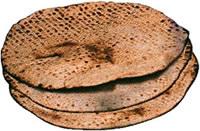







Question:
Dear Rabbi, I Have a Question...
by Aron Moss
Question:
Why do Jewish holidays begin at nightfall? For example, Purim starts Thursday night, March 13, and is over Friday night, and that is considered one day. Why?
Answer:
Your question touches upon a fascinating concept - the passage of time.
According to the Jewish calendar, not only Jewish holidays begin at nightfall, but every day does.
This is based on the story of creation in Genesis, where at the end of each day it says, “And it was evening, and it was morning; day one”, “And it was evening, and it was morning; the second day” etc. By mentioning evening before morning, the Torah defines a day as beginning with the evening, followed by the morning.
This definition of the passage of time is not only relevant to how we set up the calendar. It has profound implications as to our attitude to life itself.
Everyone agrees that life is full of ups and downs. We go through periods where the sun is shining upon us and we feel on top of the world, only to turn a corner and be faced with difficulties and obstacles that drag us down. But it isn’t long before something pleasant comes our way to pick us up again.
The question is: which one wins the day, the ups or the downs? In other words, is life a series of disappointments dotted by the occasional glimmer of hope, only to be crushed by another surge of gloominess? Or are we on a journey upwards, with challenges along the way to make us even stronger in our quest for enlightenment?
Does darkness extinguish light, or does light conquer darkness? Does night follow day or day follow night?

The Jewish view is clear. “And it was evening, and it was morning.” First the night, then the day. Darkness is a pathway to the sunrise hiding behind it. A challenge comes our way only to help us tap in to and reveal our inner powers that have until now remained unfathomed.
That’s Jewish time - the comfort in knowing that no matter how dark it may seem, it is light that will have the last word.
I’m not a “believer.” I am a logical person - I only believe in things that can be logically proven. But I was just interested: Why do you always write “G-d”?
Answer:

We do not write G-d’s name in a place where it may be discarded or erased. Treating G-d’s name with reverence is a way to give respect to G-d. So even though on a computer the name is not really being erased (and perhaps is not really there in the first place), and “G-d” is only an English term used to translate G-d’s holy name, it is in keeping with this respect that I write “G-d” in my emails and on-line articles.
This causes problems. No matter how many times I write “G-d”, the spell-check on the computer has no idea what I mean. “G-d” is not in its dictionary, and it won’t accept it as an addition to the dictionary. So the computer comes up with all types of suggested corrections: Go, Do, G’day. And often half the name ends up on a new line: Gd.
I guess I shouldn’t expect any better. No matter how smart a computer is, certain things are beyond it. How would you program a computer to have respect for G-d’s name? It is unreasonable to ask a computer to relate to G-d, because G-d is not a logical concept - He created intellect, and He cannot be captured by His own creation. A computer is limited to logic, so it can’t handle spiritual concepts. Just as a metal-detector will beep when a gun is passed through it, but it cannot pick up a person’s thoughts or intentions, intellect can grasp logic and rationale, but it cannot detect the Divine.
But a human is not a computer. Intellect is not where we begin and end. We have a soul that is beyond intellect, and our soul detects G-d because our soul sees G-d.
Jewish faith is about getting in touch with the soul that knows G-d already, without needing any proof. This is not negating intellect - it is transcending it.
How do you get in touch with your soul? Ask G-d. He’ll tell you.
Question:

I understand that the reason I will be breaking a glass with my foot at the end of the wedding ceremony is to commemorate the destruction of the Temple in Jerusalem some 2,000 years ago. This was indeed a significant event in Jewish history, but it doesn’t seem to have any relevance to me. What does a destroyed building have to do with my wedding?
Answer:
The destruction of the Holy Temple has extreme personal relevance. It happened to you. It is true that shattering the glass primarily commemorates the fall of Jerusalem; however, it is also a reminder of another cataclysmic shattering - that of your very own temple, your soul.
Before you were born, you and your soulmate were one, a single soul.
Then, as your time to enter this world approached, G-d shattered that single soul into two parts, one male and one female. These two half-souls were then born into the world with a mission to try to find each other and reunite.
At the time, the split seemed tragic and incomprehensible. Why create fragmentation where there was once completion? Why break something just so it could be fixed? And if you were meant to be together, why didn’t G-d leave you together?
It is under the chupah, the wedding canopy, that these questions can be answered. With marriage, two halves are reuniting, never to part again. Not only that, but you can look back at the painful experience of being separated and actually celebrate it. For now it is clear that the separation brought you closer than you would otherwise have been.
Ironically, it was only by being torn apart and living lives away from each other that were you able to develop
Question:
My wife wants another child. We’re financially strained as it is, and I think it’s irresponsible to add another mouth to feed when you can’t afford it. Are there no limits to the commandment to “be fruitful and multiply”?
Answer:
You are suggesting that finances should determine how many children we have. If you can’t afford it, don’t have babies. The stork should accept only cash on delivery. Debt and diapers don’t mix. It’s all about the bottom line.
as individuals, to mature and grow. Your coming together is something you had to achieve and choose, and therefore it is appreciated deeply. With the joyous reunion at the wedding, it becomes clear that your soul was split only in order to reunite and become one on a higher and deeper level.
And so you break a glass under the chupah and immediately say the congratulatory wish of “Mazel Tov!” Because now, in retrospect, even the splitting of souls is reason to be joyous, for it gave your connection the possibility for real depth and meaning.
We see a parallel story in the destruction of the Temple in Jerusalem.
The Temple was not merely a building; it was the meeting place of heaven and earth, the ideal and the real, G-d and creation. When the Temple was lost, so was the open relationship between G-d and the world. Our souls were ripped away from our Soulmate.
The only antidote to fragmentation is unity. And the deepest unity is experienced at a wedding. Every wedding is a healing, a mending of one fragmented soul, a rebuilding of Jerusalem in miniature. Our sages teach us, “Whoever celebrates with a bride and groom, it is as if he rebuilt one of the ruins of Jerusalem.” When soulmates reunite in a holy marriage, an energy of love and oneness is generated, elevating the world and bringing it one step closer to mending its broken relationship with G-d.
So you see, your personal story and the story of Jerusalem’s destruction are inextricably linked. The shattering that happened to Jerusalem happened to your soul, and the joy you are experiencing now will one day be experienced by Jerusalem, too.
One day soon, when the Temple is rebuilt, our souls will reunite with G-d, our Soulmate, in a true relationship that we built together. We will no longer mourn the destruction, but looking back we will finally understand its purpose, and we will celebrate.
Then, even the shattering will deserve the blessing of “Mazel Tov.”
That sounds reasonable. But let’s see if it makes sense.

Let’s say my financial advisor assesses that I can afford to have four children, and no more. So I go ahead and have them. A few years down the road, my situation changes drastically for the worse, and I can no longer pay the bills for a family of six souls. So I call in my youngest and say, “I’m sorry, we made a • Continued on next page
Who Am I?
by Faigie Rabin
Who am I you may well ask, I really wish I knew
If I am not myself at all, then maybe I am you
To discover who I really am, is really quite a task
Maybe I am someone else, who wears a funny mask
I strive so hard to know myself, to discover the “real me”
My thoughts and feelings all confused, yet still I cannot see
What makes me tick? What makes me feel?
So very special and unique,
My purpose in this glorious world, is what I truly seek
I wish I could be creative, self confident and smart
Not quiet, shy and insecure, emotional at heart
I wish I had the confidence to say what I really feel
Instead of fearing criticism, uttering words that seem unreal
Why at times do I feel so alone, and just yearn for a friendly face
While at others I just long to be, in some far off distant place
With no one else to bother me, and disturb my rambling thoughts,
Until my conscience brings me back, to do the things I ought?
And so I continue on my way, on this journey they call life
I try to do the best I can, though at times the going’s tough
I’ll do my part to refine the world, and make it a better place
By being “me” to my capacity, with each trial I have to face
Continued from previous page miscalculation. We thought we could afford you. But you know how unpredictable the market is these days. We’re going to have to let you go.”
How are we supposed to measure how many children we can afford? Can anyone predict what size family we can or can’t fund in the future? Who can say for certain that they can afford even one child?
A family is not a business. It’s about people, not profits. Having a big family means making the choice that our wealth is our children, and though we don’t know what the future holds, we will do all we can to provide for them in every way. If that means taking a few less vacations or having to buy used cars instead of new ones, then the sacrifice is worth it.
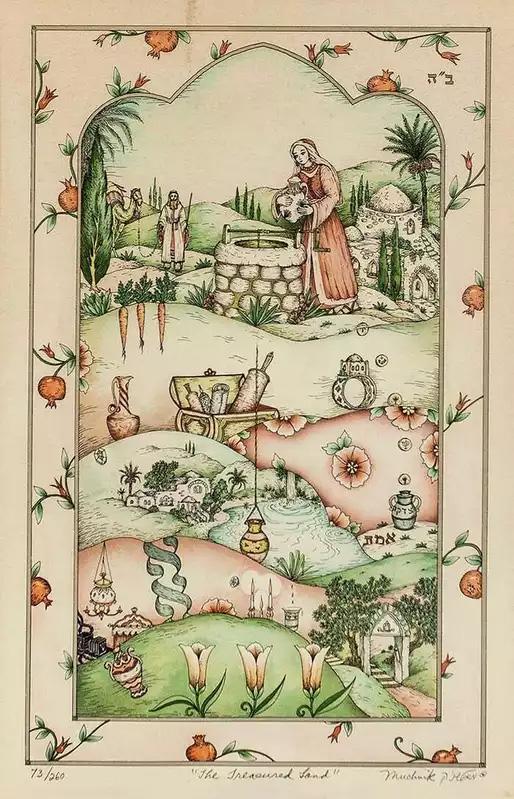
There are indeed situations where Jewish law limits our multiplying. If the emotional or physical health of the parents is at risk, or if the strength of their relationship is in question, they may be advised to hold off from having children. But they will determine that together with their spiritual mentor and their health practitioner, not their accountant.
I have often heard people say they wish they could have had more children. I have never heard anyone say they wish they had fewer. Each new soul is a blessing to the world and a blessing to the family. You think you can’t afford to have another one? Perhaps you can’t afford not to.

Being Bankrupt
The struggle & the lesson
I have a confession to make. Several years ago, when I went bankrupt, I was too embarrassed to tell you my story. But, in retrospect, I went through a process of repair and rectification. I am certainly more apt to face the times ahead, so let me share my experience.
I am a single mother of three children. As long as the children were small, I could navigate the boat with a certain measure of control. But once they became adolescents, it became increasingly difficult to handle my finances. The expenses grew exponentially with increasing costs for schools, extracurricular activities, and rental and housing expenses. The children needed better clothing, ate more heartily, and suddenly needed things that were prohibitively expensive, such as encyclopedias, computers, school field trips and more.
I had money in my savings account. But then, without warning, I lost my source of livelihood. That savings was quickly depleted. I had no choice: in order to pay for my expenses, I needed to put all my purchases on my credit card. I even started buying food with postdated checks.
I spent my time looking for an alternative, and probably had more than fifty job interviews. My mistake was that I had high expectations and high expenses, so when employers didn’t turn me down, I turned them down - thinking I could find something with better hours, more pay.
I went into overdraft with my bank. Then the checks started to bounce. I cannot even count the number of complaints filed against me, the number of times bill collectors seized my furniture, electrical appliances, and numerous other possessions. It spiraled so fast, and was ugly and painful. I shiver when I think about it.
The immediate fires were put out first, but every time I smothered one, another had been lit elsewhere. I kept waiting to see the “end of the rainbow” with the next job interview, the next lottery ticket, the next I don’t know what. Eventually I was evicted from my home, and my car was also seized.
During these times, my primary concern was trying to protect my children. I told them that it would all be okay.
But it wasn’t. I felt like I didn’t belong amongst the people who had once been close to me. I did not join them on outings; I did not invite them over. I was annoyed by their conversations about travel plans, vacations, renovations, and the other ways they were spending their money. I was alone, nowhere near family, and feeling like a real failure.
We were able to move into a really tiny apartment. I ended up accepting a low-paying job, and tried to scrape by with my expenses. But I also had major debt which had skyrocketed with interest. On top of all of this, I had lawyer fees to deal with. Eventually, as others found out about my situation, I learned who my real friends are. And also discovered who really didn’t care. There were those who, in spite of my desperate situation, continued talking about their next trip abroad, which hall to pick for their son’s bar mitzvah, and the prices of installing a parquet floor.
But whoever was a real friend remained a friend to date. And how I wish I could have recognized how much I needed them, and given them the opportunity to be there for me so much sooner than I did. How I wish I had been willing to face my situation early on, before it got out of control. I kept hoping it would somehow get better on its own, but what I really needed to do was take responsibility for fixing it alongside taking the help that other people wanted to offer.
Today I lead a much simpler life. I buy food at the outdoor market. I do not own a car, and travel by bus. I no longer have the possibility of overdraft, and I pay for every purchase in cash. I would not take a loan unless my or any of my children’s lives depended on it, not even from wellmeaning friends.
I have learned that living simply is not demeaning. In fact, it’s very much in vogue. Today it’s cool to buy second-hand things to protect the environment, to save bath water and reuse it to water the plants, to use fluorescent light bulbs to cut electric bills, to repair appliances rather than throw them away, to plant herbs on the balcony. With my creativity and artistic skills, I have made works of art from pieces of furniture that others threw away. I can make gourmet vegetarian food out of the simplest, wholesome products.
But the biggest perk, a true gift from Above, is to see that my children have grown into responsible, independent and hardworking individuals who are always ready to lend a hand to those less fortunate. When my life was going well, other people’s troubles seemed surreal. But now I can approach people in distress and be able to empathize with them. I don’t wait for them to ask, as I know how hard and humiliating it can be. And finally, I am no longer embarrassed that I have been broke, nor do I feel it is anything to be embarrassed about. Rather, I now see it as a gift I was given: to discover what is really important and what truly has value, and to discover the inner strength and abilities that I have that otherwise might never have been revealed.
Reflections on a Snow Storm
by Baruch Epstein
You learn a lot about yourself and your community when relentless weather snarls all your plans. There are the heroic efforts of nameless shovelers rescuing snowbound drivers, hard-headed dopes who defy the reports and head out to the mall only to spend the night stranded on a snow-covered roadway, and playful grownups grateful for a chance to be a kid again and play in the snow.
Two days after a record snowfall, a friend knocked on the Chabad House back door and asked for a shovel. Believing the worst was over, he had driven down the alley behind us and gotten stuck. I gave him the shovel, and when I hadn’t heard from him after fifteen minutes I assumed he had dug himself out, as hearty Chicagoans do. A half hour passed, and he reappeared to ask if we had an icebreaker. Apparently I missed the original opportunity to offer assistance - I may be slow but I ain’t stupid - so in addition to getting out the heavier tool, I put on my coat and went to help liberate his Honda.
Every cold-weather citizen knows it’s all about the momentum: find a dry spot, rock the car back and forth, gun the engine, push, reverse, drive, reverse, drive, go, go, go, and voila, you are free. Well, he had really gotten stuck; the tire tracks he thought he could follow must have been made by a monster truck, and his modest sedan was jammed in a snowbank between the grooves - his attempt to bulldoze through it had only made it worse - there was no give, no movement, nothing at all. Long story short (hope it’s not too late for that), an hour and half later we got him free.
So what was the lesson? How was my life enriched by this experience? We are all stuck in different ways. As a people, we are stuck in exile, stuck in the wake of two thousand years of homelessness. In our individual lives, some are stuck in a job we hate, or in a mediocre relationship, resigned to a second-rate life. Most personal disappointments in isolation seem rather petty, certainly manageable, and at least tolerable; it’s the accumulation that wears us down. Snow is the same: any handful is powerless against us - it’s the buildup that neutralizes us.
So how do we prepare for it, overcome it and grow from it? The first step is information. The weathermen told us it was coming - they told us to get home early, stock up on food and stay off the roads. The experts, generations of Torah scholars, the Rebbe, warn us about the ferocity of exile and the toll it takes on the unprepared. Arrogantly, some think themselves stronger than nature, able to defy its might and thus take no precautions. We assume we

can sustain our Jewish identity without stocking up with plentiful supplies of Jewish warmth, energy and study. We think we can stay late at the office longing for a deal that never comes (everyone else is home by a warm fireplace), and that our children will still love their Judaism despite our display that nothing is more important than “success.” When we are attentive we learn the value of planning ahead, we ready our supplies, invest in mitzvot and enjoy the benefit when the blizzard strikes.
Back to my friend and his snowbound car. My mental/ emotional state was everywhere: frustration probably at the top of the list, despair a close second, determination limping along in the background, and hopeless surrender vying for a seat at the table. And there was a dose, I am ashamed to confess, of heartless disregard - hey, it’s his fault, who asked him to drive there, it’s not my car anyway.
The Rebbe teaches us never to blame, never to dwell on explaining how someone got stuck; just grab your earmuffs and dig him out, then on to the next one. Each stuck motorist is your problem, regardless of how they got there, regardless of how many warnings they ignored - your door was knocked on, you were made aware; that means you are part of the solution. Go ahead and ask the neighbors, avail yourself of every resource, but their failings won’t alleviate your responsibility. It just means you have more to do. Try salting the spot, turning the wheels, revving the engine before shifting - they are all good ideas. We have to innovate, be radical, think beyond the shovel. No one is leaving till we get this done; as long as he is here we are all here.
Ultimately, it is the composite of all of these tactics that got my friend home that night, and the same is true of us. Keep on with the mitzvot, more acts of goodness and kindness, more charity, more learning, more Shabbat guests, and sprinkle in some fresh strategies, and the cumulative total will break through the frustrating hold that exile appears to have on us. And let me tell you - there is no comparison to the sweet sensation of success when liberty comes.

Three Simple Steps To Disarm an Angry Person TURN CONFRONTATION INTO FRIENDSHIP
by Tzvi Freeman
You’ve just sat down to a cup of coffee and without warning a torrent of rage is pouring down on your head. You must have ticked someone off, because that someone is red with fury, berating your worth, threatening you with consequences, and really spoiling your break. You would like to ignore all this, but that someone is your manager.
Or maybe it’s your spouse bringing up every wrong thing you’ve done since the day you were born. Or your dad accusing you of embarrassing him with your failures. Or your coach blaming you for blowing the big game. Whoever it is, what’s your strategy?
So here’s advice from someone who knew what he was talking about.
Rabbi Schneur Zalman of Liadi had a lot of people screaming at him for most of his life - his in-laws, his chassidically-challenged opponents, even his own colleagues. He was the sort of person who just did what he knew had to be done - a habit many people find very threatening. It got to the point that he was libeled and imprisoned on charges of treason. Once declared innocent and freed, many of his fans were geared up to taunt those nasty detractors of his. So he wrote them a letter, a real classic, admonishing them to stay low and humble and out of any fights. At the end of that letter, he cryptically provided three verses from the Book of Proverbs. The Rebbe deciphered those verses as a simple formula to turn around even your harshest, meanest and most crazed antagonist.
And all in just these three simple steps:
Step One:
“A gentle response turns back rage.” (Proverbs 15:1)
Neuroscience calls it “amygdala hijack.” A little chunk of brain-meat called amygdala has taken over the cockpit dispersing legions of hormones to storm every gland, organ and muscle of the body in a massive coup d’état before the higher brain functions have a chance to kick in. The neocortex is under house arrest and rational thinking is suspended indefinitely.
In common lingo, he’s lost it. And you are the collateral damage.
Yes, your blood is curdling in instinctive defense. Your heart is pumping and ready for the fight. Your mind is shooting out a long list of all the fiery comebacks that will hit where it hurts.
And that’s a very natural, instinctual reaction. When a bear is under attack, it stands up on its hind legs and makes itself look big and terrifying. Well, there’s a bear inside each of us and when it feels threatened it wants to stand tall and important-looking and scream, “Do you know who I am? How dare you attack me like that! Wait till you hear the insults I can shoot back at you! I will destroy you!”
But that’s the last thing you want to do. Because then everyone’s lost it.
Instead, you hold yourself back, wait for a pause (it eventually does have to come, and you really, really don’t want to open your mouth before then) and choose some gentle words to soften the blow.
Something that acknowledges the other guy’s emotions. Something to make it clear you’re not in for a fight. Something totally unexpected. Return artillery-fire with flowers.
Like one of these - softly and sincerely:
“I’m really glad you’re telling me all this.”
“Wow, I had no idea such a mess came of this.”
“Well, it’s a good thing we’re discussing this now.”
“You know, you’ve got a good point there!”
“We don’t really have to fight about this. We both really want the same thing. Let’s talk it through.”
In fact, it’s more what you don’t say than what you do say. Your interlocutor was fully expecting a full blown confrontation, but you ended the battle before it began.
That makes you a hero. Like the Mishnah in Ethics of the Fathers says, “Who is mighty? The one who rules over his
own impulse.”
And you did it like a true hero, without anything snide or smart-alecky. You really meant what you’ve said.
Okay, sometimes that’s just too hard. So here’s a tip: Skip reality for a minute. Instead, pretend you’re having a pleasant conversation with a perfectly calm person who is saying very sensible things. Now respond in kind. Of course, you’ll need a few of these sincere comebacks for your slingshot, but eventually the monster will fall to the ground. Because there’s just no fun in fighting with someone who doesn’t fight back. Zero gratification, zero reinforcement, and therefore zero rage.
You’ve got the fire out. But it’s still smoking. The next step is:
Step Two:
“A broken spirit dries up bones.” (Proverbs 17:22)
The screaming has subsided, but that face - that cold, harsh, stony face. It may as well be a skeleton staring at you. Can’t placate a skeleton.
How do you dry up the remains of that anger and get back the living person?
The answer is to make yourself very small.
Yes, this is counter-intuitive and counter-instinctual. You’re under attack - how can you make yourself look weak and vulnerable?
But it works. Become a nobody. No fun being angry at nobody. Even the hardest heart melts before a humble spirit.
So make yourself real small by saying something that makes real sense. Something that acknowledges this guy’s right to be enraged without making yourself into a total idiot or saying you’re wrong when you’re not. In other words, admit that you’re human:
“Look, we all make mistakes. I’ve made a lot of mistakes in life. That’s why we have to talk with each other.”
“The last thing I want to do is get in the way. I know I’m not at top gear all the time, but I really don’t want to mess things up.”
“I really didn’t know this bothered you so much. Why should things done by just another guy like me mean anything to you?”
He’s melting. But you’re still not ready to talk it out. For that you need more than an absence of anger. For that you need some sort of affinity to one another. For that you need…
Step Three:
“As water reflects a face, so a person’s heart reflects that of another.” (Proverbs 27:19)
It’s both one of our weakest points and one of our most redeeming qualities: The imitation response. From the earliest days of life, we learn to throw back at others what they throw at us. Take a jab at someone and get ready for the jab coming back your way. Show a smile and it’s as though you’re almost forcing the other guy to smile back.
Yes, it can be hard to throw that initial smile. It helps to really like the other guy. And there’s got to be something there you really do like. Even nasty people have some redeeming qualities - and maybe this guy isn’t quite the nastiest of them all. Hey, maybe it’s your spouse, and there was a reason you got married in the first place.
So find that. Focus on it. Focus hard, and forget all the rest.
As soon as you can awaken some good thoughts about this person in your heart, his or her heart will begin to reflect it. Especially if you can show those good feelings in your words and in your expression, it will all be mirrored back “as water reflects a face.” It’s guaranteed by King Solomon and the Torah.
Now you can pretend you were just having a delightful conversation with this person who you really like. Imagine someone just cracked a joke, and it was actually funny. And you laughed.
Now smile. There’s a smile coming back your way.
Practice Makes Perfect. Roll with the punches. Swallow your pride and return bullets with flowers. Lie low and humble. Ponder what you like about this person. And then defuse the whole situation with a smile.

Pray Ball!
Kaddish at a Baseball Game
By John Yaakov Guterson
My Dad loved baseball games. At the ballpark, we would sit together, eating our peanuts, discussing each nuance of possibility. “Baseball is like poetry,” Dad would say, where innings become rhythms of pace and pause. Father and son, side by side, the diamond before us.
Dad would relish his one beer, after which a touch of foam inevitably appeared on his mustache. This always made me smile. Dad seemed to know everything before it happened: “Get ready for the hit and run!” or “Time to bring in the southpaw!” He rejected sitting too close to the field: “Higher seats give you better perspective, John.” Dad was a kid again, all smiles, excited, revved up. How I loved being with him at those games.
Kaddish. Kaddish is what one says when a parent passes. It is the Torah way. Saying the Kaddish prayer, like doing any mitzvah here in our physical world where the deceased no longer can, has the extraordinary ability to lift the soul of the deceased higher and higher. As such, the experience of Kaddish is transcendent, a connection to G-d, and for me, a connection to my dear father, Mordechai Ber Guterson, who breathed his last on Friday night, Oct. 4, 2013.

my emotions.
To say Kaddish one needs a minyan, a quorum of 10 men. In the Torah world, we are not alone. Needing nine Jewish men to join me, Rabbi Silverman came to the rescue, as he had already organized a “Jewish college students night at the ballpark” for that very game.
Dad, I will not let you down. You and Mom brought me into this physical world; you raised me, made me who I am. I’ll be there.
Now, I can’t tell you the names of any of those college students who left their seats in the bottom of the first inning. I knew none of those young men who spared 15 minutes to stand near a 60-yearold, white-bearded son as he paid homage to his deceased father. But there they were - some knew Hebrew, some did not, but that didn’t matter. Simply being there was the key, the power of 10 Jews together.
Kaddish is also something of a marathon: three times a day at shul for 11 straight months, reciting it loud enough so that all can hear and follow. It takes breath, consistency, endurance, resilience. It takes a fastidious rearranging of work schedules and vacations. It takes honor and love.
And if you’re late to shul, by chance, then you’ve missed that moment to say Kaddish. Opportunity lost. I confess to some restless nights, fearful that I would oversleep. For obsessives, a perfect set-up.
Dad, I will not let you down. You and Mom brought me into this physical world; you raised me, made me who I am. I’ll be there.
And Dad, you lovingly wrote to me years ago that although you considered yourself to be a “non-believer,” you were at peace knowing that I would be your Kaddish. You wrote: “It’s always good to have an ace in the hole.” I embraced those words, Dad, like a soldier.
And so it was not by accident that at the end of my 11 months of Kaddish I went to a baseball game. To celebrate my Dad. Pirates vs. Cardinals. My 10-year-old son and my son-in-law joined me, their presence as buffers for
For without all 10 of us, whether they understood fully or not, I would not have been able to say that last Kaddish, the culmination of 11 consistent months, of 990 minyans, of never missing once. And so, as the crowd roared in the background, those nine guys meant everything to me.
As I walked back to my seat, I realized how much my Dad would have loved the whole scene. I could feel him there with me, smiling, thanking me, loving me and then urging me to get back to my seat soon, not to miss another pitch. Tears welled up inside me as I took that walk, another goodbye to my father.
As I approached my seat, there was a 10-year-old boy, wrapped up in the moment, the thrill of a ballgame, pistachios in hand. He looked up at me with a big smile on his face, and said: “Hi, Dad!”


Talking With G-d
by Naftali Silberberg
Generally, we use our verbal skills to communicate our needs to others, or to respond to others’ needs. There is usually a utilitarian goal in mind - a piece of information we wish to hear, or a request we would like to convey.
But these conversations, as important as they may be, do not do justice to the true power of speech. Speaking serves another, much more potent purpose when the conversation itself, and the connection it creates between people, is the objective. Friends will pick up a phone and call each other simply to keep in touch. Children call their parents,
sometimes for a purpose (financial requests are high on the list of “purposes”) - but usually the point of the conversation is just to touch base. A couple newly in love will spend endless hours talking about nothing, anything, and everything. With the advent of texting, these conversations often continue through the workday as well (much to the consternation of many an employer). And just as the chat seems to be coming to an end, one of the parties will invariably find yet another “pressing” topic to discuss. Neither wishes to break the bond created by the conversation; neither wants to say “good bye.”
Here we have a classic case of the whole being greater than the sum of its parts: the topics discussed are not as significant as the conversation itself.
The above also applies to our daily “conversations” with G-d - a.k.a. “prayer”. Prayer comes naturally when a person, G-d forbid, experiences hardships. But passionate prayer when all is (relatively) well is, in a certain sense, a far more meaningful experience. Because our conversations with G-d serve a dual purpose: they are an opportunity to beseech our Provider for health, prosperity and nachas from our children; but more importantly, they are also moments when we connect with our beloved Father in Heaven. Indeed, to a certain extent, the content of our prayers is less significant than the experience itself - an opportunity to connect with G-d.
You have His attention; speak as long as you wish!


PKU: A Medical Model of Kashrut?
by Pinchas Taylor
The Jewish soul is sensitive to the harmful spiritual effects of forbidden animals. The sages have written that the dietary laws, which are designated specifically for Jews is likened to a doctor who gives out two different prescriptions for two patients who report the exact same symptoms. The doctor can diagnose what is best for each by examining their makeup, and what is most beneficial for their bodies. To the patients, upon superficial examination, they both may appear entirely similar, yet the doctor can see a more accurate picture. In this case, the doctor is G-d who prescribes which diet is tolerable for each soul.
In Chassidic thought, everything in the spiritual world has a counterpart in the physical. This permits thought for the existence of spiritual molecules based on the knowledge of chemical structures. In other words, the molecules studied in chemistry could be thought of as the reflection of the intangible spiritual molecules the Creator uses as a blueprint. With this, Dr. Velvl Greene adresses those who reject kashrut because they lack empirical proof:
There is a medical condition called phenolketoneuria or PKU. It is a hereditary metabolic disorder affecting about one out of 15,000 children born in the northern hemisphere and leads to an irreversible and severe retardation.
The newborn child appears healthy and normal. He cannot really be distinguished during a routine physical examination, from his 14,999 unaffected peers. Over the course of several years he develops a characteristic appearance and brain damage.
Physiologists have determined that the brain damage is a result of the accumulation of phenylalanine in the body. Normal people have the ability to metabolize phenylalanine and to convert it to other, non-harmful nutrients. But one child in 15,000 lacks the necessary enzyme and the phenylalanine accumulates until it harms the developing brain.
Now consider the following scenario: a public health nurse visits a young mother who has just come home from the hospital with her precious newborn baby. The nurse conveys the frightening news that according to the lab tests the baby has PKU. She also provides the mother with a list of prescribed foods and instructions for preparing a suitable preventive diet.
Neither the nurse nor the mother is a chemist. The mother knows nothing about molecules or physiology or metabolism. She knows what she sees - a healthy, normal baby, like any other baby in the world, who enjoys eating and is apparently thriving on the diet being provided. The nurse knows a little more. She has studied a little chemistry and understands the best physiology of metabolism. Or at least, she believes the teachers who taught her. The nurse doesn’t really know the basis of the diagnostic tests; nor could she prescribe a diet out of her own experience. All she is doing is her job of transmitting the information she was taught. She believes she is acting in the best interests of the child and the community. But she is mostly acting out of duty and acceptance of higher authorities - such as doctors, chemist and nutritionists - who have studied more and know more and have better sources of knowledge.
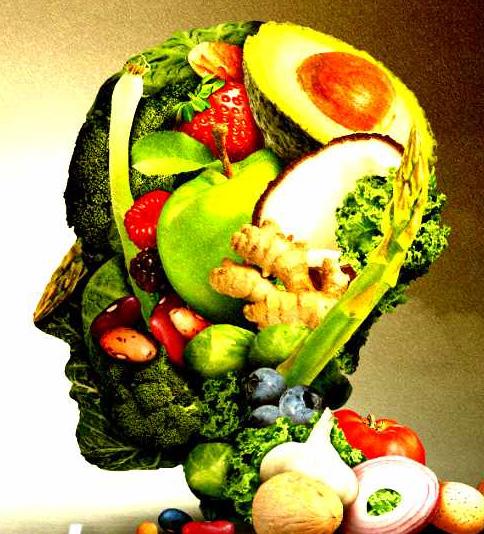
Around 50 years ago, American bacteriologist Robert Guthrie devised a blood test which permits the early diagnosis of PKU, within a few days after birth. This test is now compulsory in most Western countries. Every baby born in a hospital is tested for PKU. If the results suggest that the condition is present, the mother is provided with nutritional advice and counseling. If the diet is modified early enough, and if the phenylalanine-containing protein is replaced with a synthetic substitute and fed for the first four or five years, the retardation can usually be avoided. The solution is not simple. It is also inconvenient, unappetizing and expensive. But, it is effective.
The mother refuses to accept the diagnosis or the diet. She does not believe in the mysteries of chemistry or accept the authority of the doctors. Her baby looks normal and happy. Besides, the recommended diet is too expensive and inconvenient and unappetizing. What is all this nonsense about molecules anyway?
What could one tell the mother who demands, “Show me the danger now! Show me the difference between my baby and all the others!”
In essence, although the Jewish dietary laws are categorized as a Mitzvah which transcends logic, the human mind can still get a glimpse of at least some of the benefits and meaning inherent in these laws. Through even brief investigation into the writings of the sages it becomes evident that physical wellbeing is not at all the driving force. Instead, the Jewish dietary laws seek to prevent negative traits from becoming part of the Jew, and as the mystics stress, keeping away from spiritually detrimental energy.
For the one who is new to kosher observance, there is no need to jump into everything at once. Judaism is about progress, not perfection; climbing step by step, on the proverbial ladder of spiritual growth. Every step one does toward enhanced kashrut observance enhances his connection with Jewish tradition and with G-d.

My Wall of Protection Against the Craziness of Our Times
by Elana Mizrahi
I went back to school this year, and one of my classmates phoned me for advice. She’s expecting, and she knows that I work with pregnant women. She described to me how she has terrible fears. She keeps hearing so many stories of tragic events. She now thinks about them all the time in her waking hours and dreams about them in her sleep.
This woman does not have OCD. She is a pregnant woman, and pregnant women have normal fears. When normal fears are attacked by story upon story of horrific events, it breaks down even the most secure and strongest of women. A woman doesn’t have to be pregnant to feel bombarded by horror stories and catastrophes. All she has to do nowadays is turn on her phone or laptop and be connected to social media and the news.
helplessness, I asked her to write a list of gratitude - to do this daily, but to keep it short and simple, maybe three to five things a day. The more gratitude we feel, the more we stay focused on the positive.
Now comes the part of the wall that is our defense. I advised her not to listen - at least not right now - to anyone’s stories. I myself don’t listen, watch or read the news, and I limit my contact with the Internet and social media. And I recommend it all the more so for a pregnant woman or a woman after birth, who needs her emotional energies and physical strength to care for her baby.
It’s not that I want to be “ignorant.” It’s not that I don’t care about the world. It’s just that every day, every minute, we are attacked on all sides, inundated with reports and information that may or may not be true. (I’ll never forget when our aunt called us from Mexico with concern for us because she saw that Jerusalem was flooded. I looked out my window and it was drizzling, hardly what I would call a flood.)
I brainstorm if there is anything that I can tangibly do. I try to see if there is a message for me to learn from. And then honestly, I know for my own mental and emotional health that I must move on.
I sighed and told her that I myself have learned what I must do in order to live - in order to emotionally and mentally survive. I build a wall of protection and do what I can to keep myself safe inside.
I asked her a question. “Was she and the baby, at least as far as she knows, for now, healthy?” Yes, thank G-d.
I encouraged her to stay focused on that and to be in the moment. In my 10 years of being a doula, working with pregnant and postpartum women, I can tell you that I have seen that, thank G-d, the vast majority of women are healthy, and have healthy, beautiful births and healthy, beautiful babies.
I then asked her if she could start to write a list of what she felt helpless about and give the list over to G-d to take care of. Because, you see, the foundation of a wall is faith and the understanding that G-d is the One in control. Every day I pray to G-d, having both “formal” and “informal” talks with Him. Giving over my worries and fears to Him is both freeing and comforting.
With a foundation in place, I start to build my wall. The first bricks on the wall are gratitude. Next to the list of
There is so much going on around us. For a neighbor, a family member, a friend. I will hear their story and I’ll take a minute to say a prayer. I brainstorm if there is anything that I can tangibly do. I try to see if there is a message for me to learn from. And then honestly, I know for my own mental and emotional health that I must move on.
When the Nation of Israel left Egypt, G-d made us wait 50 days before giving us the Ten Commandments and the Torah. We were a new nation, like a mother right after birth. We were on a high, but still emotionally and spiritually sensitive. Our freedom, the receiving of the Torah - everything was so fresh and new. Moses then left us to go back up Mount Sinai for 40 days of learning and to receive the Two Tablets. We had already received the Torah, but we needed explanations and more details to understand and keep what we had taken upon ourselves to do.
The nation knew that Moses was going to be gone for 40 days, but there was some confusion. A very small fraction of the people miscalculated and jumped to the conclusion in panic and fear that Moses wasn’t coming back. The reality was that the nation was fine and they were connected to G-d, but they were already worrying about what would be if Moses didn’t return. There was no “just living in the moment.” The fears, based on a false story and untrue assumption, shot sharp arrows into our wall of security and shook our foundation of faith. This led to the worshipping of the Golden Calf by a small group who were able to negatively affect the entire nation.
• Continued on next page
32 The Chabad Times - Rochester NY - Adar 5785
Continued from previous page
That day, the 17th of Tammuz, was a day of panic and false stories. Panic that aroused our worst fears. This day repeatedly has been a tragic day in Jewish history. It was the day that the walls of Jerusalem were breached by the Romans and that led up to the destruction of the Holy Temple. It is now a public fast day. A day of repentance and reflection.
It’s also a day when a person can ask: “How can I build and strengthen my foundation of faith?” I can remind myself to be in the moment - to deal with whatever I need to deal with as it comes. I can talk to G-d, pray to Him. Give over my troubles and worries to Him, and ask Him to help me.
“How can I build up my wall of protection?” I can screen what news and information come into my home and into my heart. I don’t have to listen, watch or believe everything out there. Instead, I can hear stories of faith and Divine Providence. I can seek out supportive, positive, growth-orientated people - family, friends, teachers, rabbis, mentors. I can open my eyes to the daily blessings and miracles in my life.
With a wall of protection firmly standing, with G-d’s help, I won’t get swept away with fears and hysteria that want to knock me down. Instead, I will feel more secure. I will feel strong.

SCAN QR CODE FOR TEHILLIM - PSALMS
FOR OUR BROTHERS & SISTERS IN ISRAEL FOR THE IMMEDIATE RELEASE OF THE HOSTAGES FOR THE SAFETY OF THE SOLDIERS

A Penny For Your Thoughts?
by Mendy Kaminker
Please don’t take this personally, but soon I won’t be paying a penny for your thoughts.
Not because your thoughts aren’t worth it, but because the U.S. Mint will stop producing pennies. They say it’s because every penny costs two pennies to mint. I understand the reasoning, and still, it will be sad to say goodbye to our good old friend.
One of my childhood (toddlerhood, to be exact) books was a big book titled ‘The Very Best Place for a Penny’. Although I grew up in Israel and didn’t know how to read English, the big, colorful pictures told an unmistakable story.
A larger-than-life penny gets lost in all kinds of funny places - in a drawer, on a slide in the playground, in the washing machine. Finally, a kindhearted boy finds it and places it where it truly belongs: a Tzedakah box!
Plus, Tzedakah is all about transforming the physical into something holy and divine, and using a physical coin is both a symbolic and effective way of doing that.
In 1974, as part of his Mitzvah campaigns, the Rebbe launched a “Tzedakah campaign,” calling on everyone to increase their giving to charity.

That simple message has stuck with me ever since. When I go to stores and get change, I always look for a nearby Tzedakah (charity) box. Kosher stores usually have a few near the cashiers, featuring various charitable causes. Other times, I keep the coins in my pocket until I get home and place them in my charity box.
True, we can - and should! - give Tzedakah in more modern ways, by swiping, clicking, and tapping. But there’s something deeply satisfying about the gentle clink of a coin falling into the charity box.
A big part of that campaign was placing Pushkas (charity boxes) Everywhere - in the office and the car, in the kitchen and study halls. Every place should have one, allowing us to fulfill this special mitzvah.
Do you have a Tzedakah box at home?
If not, now is a great time to start. If you do, now is a good time to be extra mindful about using it regularly.
One simple trick is to keep using the same coins - when the Pushka is full, empty it, count the money, and send a check or make an online donation for that amount to the charity of your choice. Then, you can start the cycle again with those same coins.
As our society moves further away from physical money toward swipes, taps, and clicks, let’s keep the Tzedakah box going.
And if they do run out of pennies, I hope the publisher of that book will be kind enough to release a new version: ‘The Very Best Place for a Nickel’!











Spreading Light: Chabad of Pittsford & Chabad Young Jewish Professionals
